Raise the Line
Join host Lindsey Smith and other Osmosis team members for a global conversation about improving health and healthcare with prominent figures in education and healthcare innovation such as Chelsea Clinton, Mark Cuban, Dr. Ashish Jha, Dr. Eric Topol, Dr. Vivian Lee and Sal Khan, as well as senior leaders at organizations such as the CDC, National Institutes of Health, Johns Hopkins University, WHO, Harvard University, NYU Langone and many others.
A Personal Struggle Fuels National Advocacy for Rare Disease Patients: Shanti Hegde, Board Member of Hemophilia Federation of America
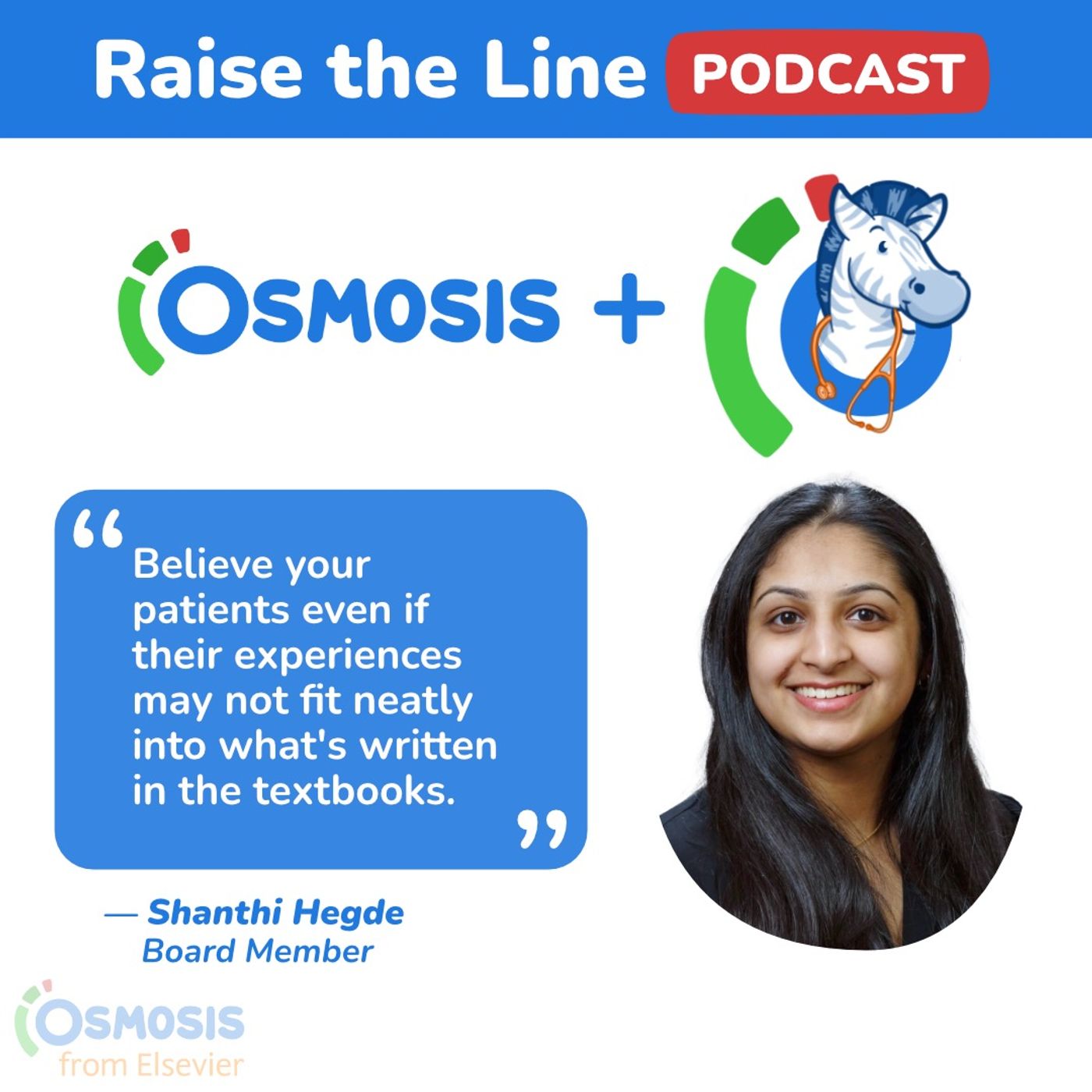
We’re marking Rare Disease Month 2026 by highlighting the powerful story of Shanthi Hegde, a young patient advocate working to transform how bleeding disorders are understood, treated, and supported. This work is fueled by her own arduous journey with two rare bleeding disorders and immune dysregulatory syndrome, and an extended diagnostic odyssey marked by dismissal, underdiagnosis, and structural bias. “I was told many times by many providers that these disorders are not common in Indians and that my bruises were there just because I'm brown.” Admirably, Shanthi pushed past this mistreatment, advocated for her medical needs, and devoted herself to tack...
A Moment of Change in Public Health Policy: Dr. Paul Offit, Director of the Vaccine Education Center at Children’s Hospital of Philadelphia
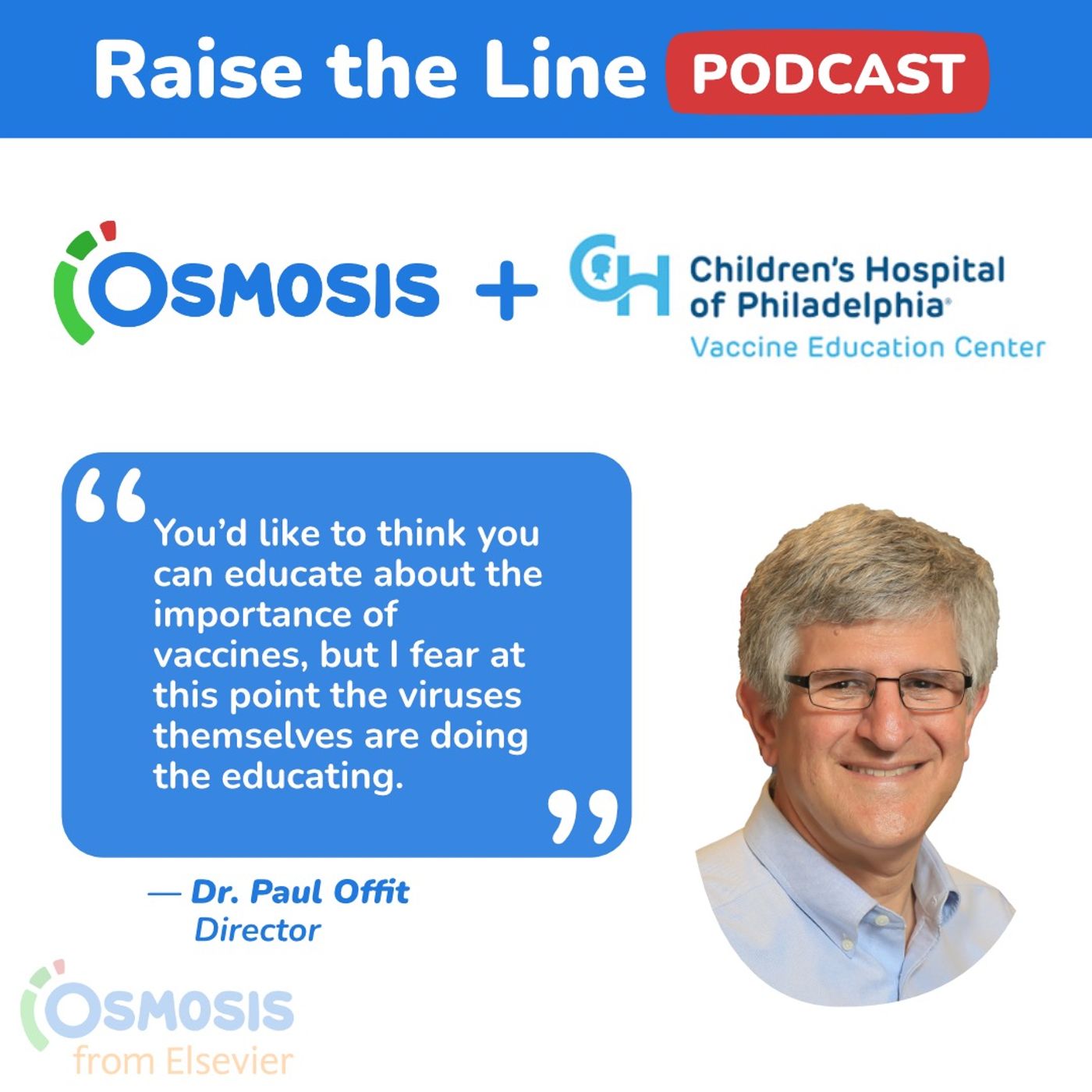
Few issues have tested public trust in medicine as deeply as vaccines, and few individuals have influenced that dialogue more than Dr. Paul Offit, director of the Vaccine Education Center at the Children’s Hospital of Philadelphia and a longtime member of the FDA’s Vaccine Advisory Committee. In this timely and candid interview with Raise the Line host Lindsey Smith, Dr. Offit points to this year’s severe flu season and a resurgence of measles as alarming proof points of how a changing federal perspective on vaccine policy is having a real impact on public health. “You’d like to think you can...
A Trusted Voice on Allergies and Asthma: Dr. Zachary Rubin, Pediatric Allergist-Immunologist at Oak Brook Allergies
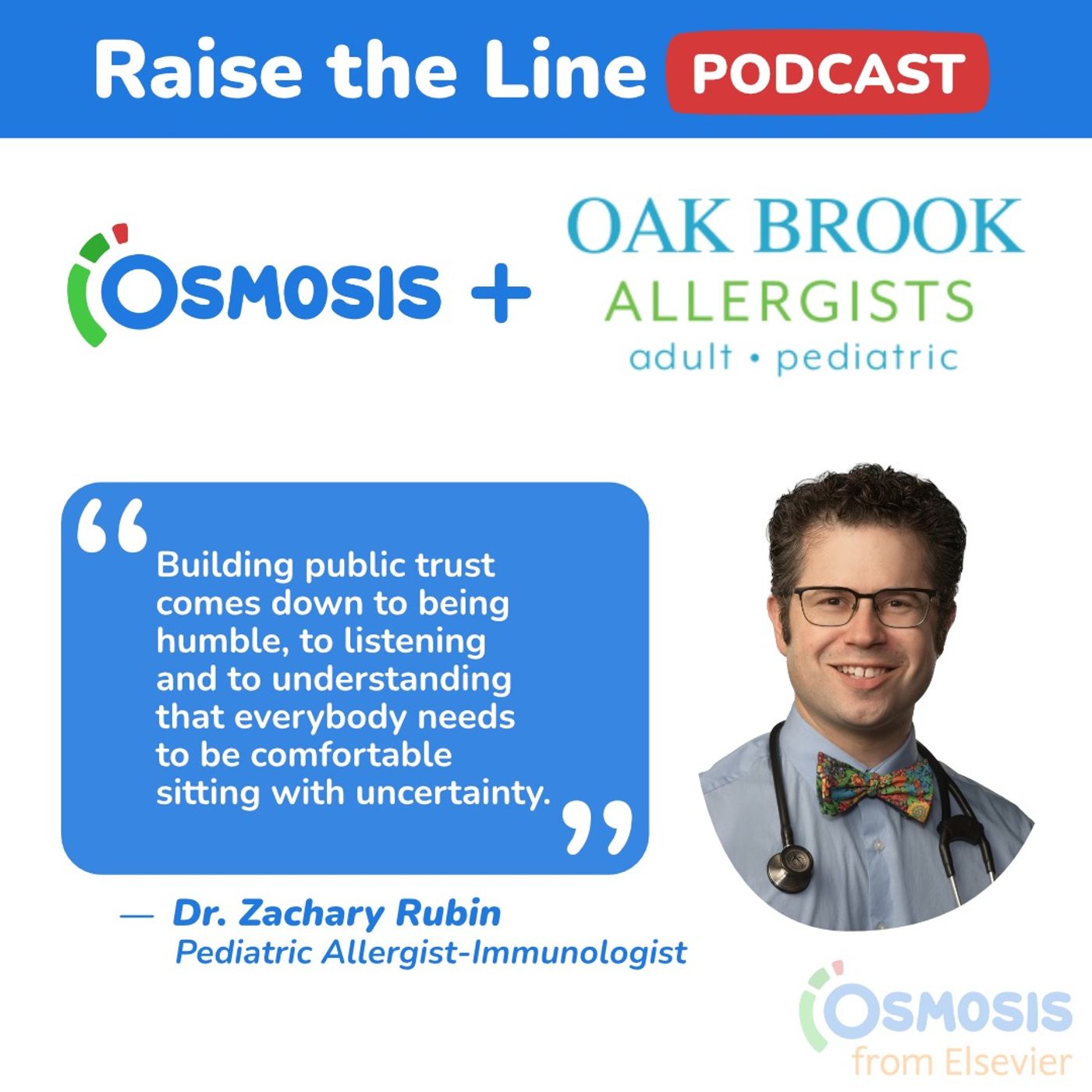
“I do not believe we should be testing to test. We have to know, is this test going to change management and is it going to make a difference,” says pediatric allergist-immunologist Dr. Zachary Rubin. His knack for providing that sort of straightforward guidance explains why Dr. Rubin has become a trusted voice on allergies, asthma, and vaccines for his millions of followers on social media platforms. It’s also why we couldn’t ask for a better guide for our discussion on the rise in allergies, asthma, and immune-related conditions in children, and how families can navigate the quickly...
Leading a Global Effort to Empower Nurses: Dr. José Luis Cobos Serrano, President of International Council of Nurses
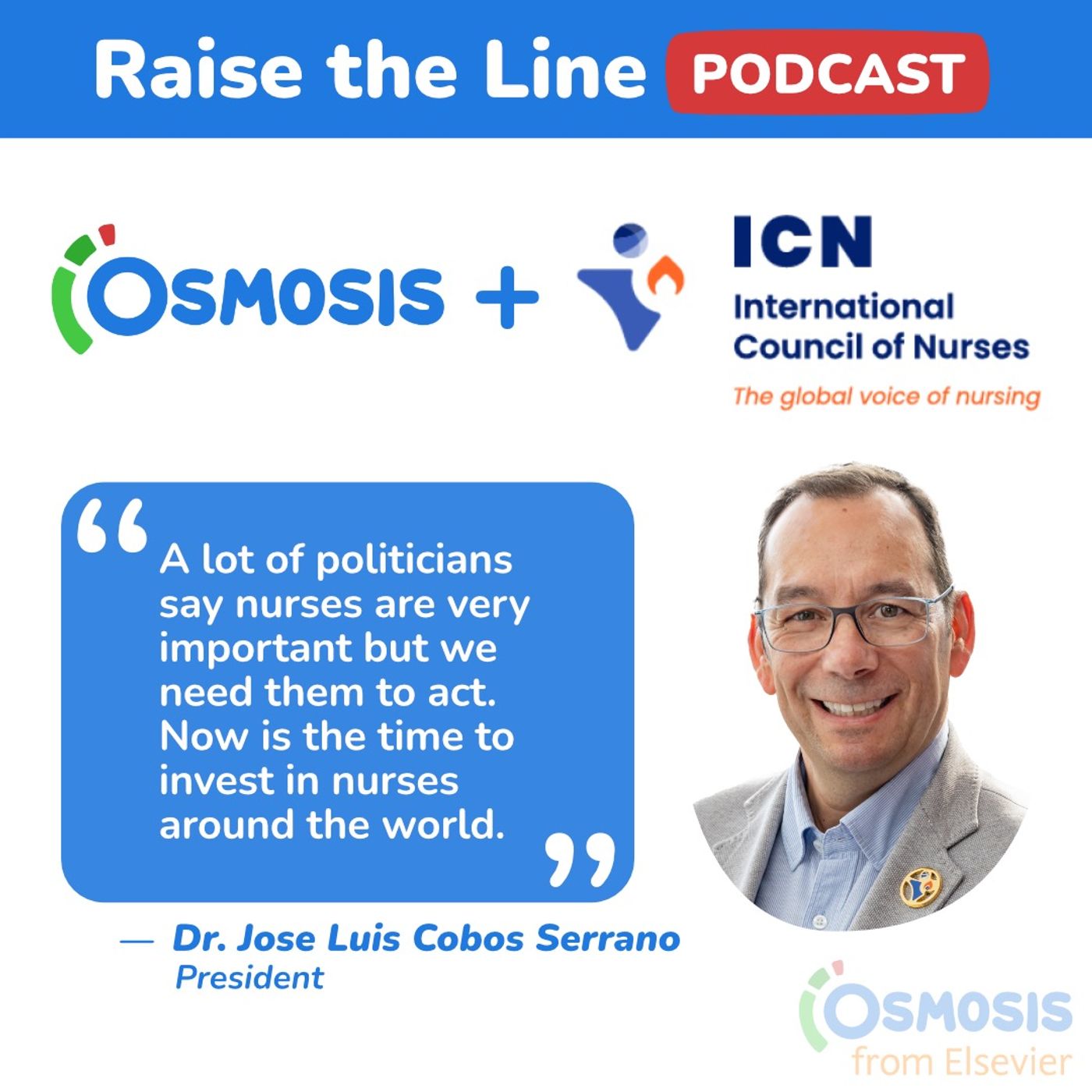
If you like this podcast, please share it on your social channels. You can also subscribe to the series and check out all of our episodes at www.osmosis.org/podcast
Building Climate-Ready Health Systems for a Massive Region: Dr. Sandro Demaio, Director of the WHO Asia-Pacific Centre for Environment and Health
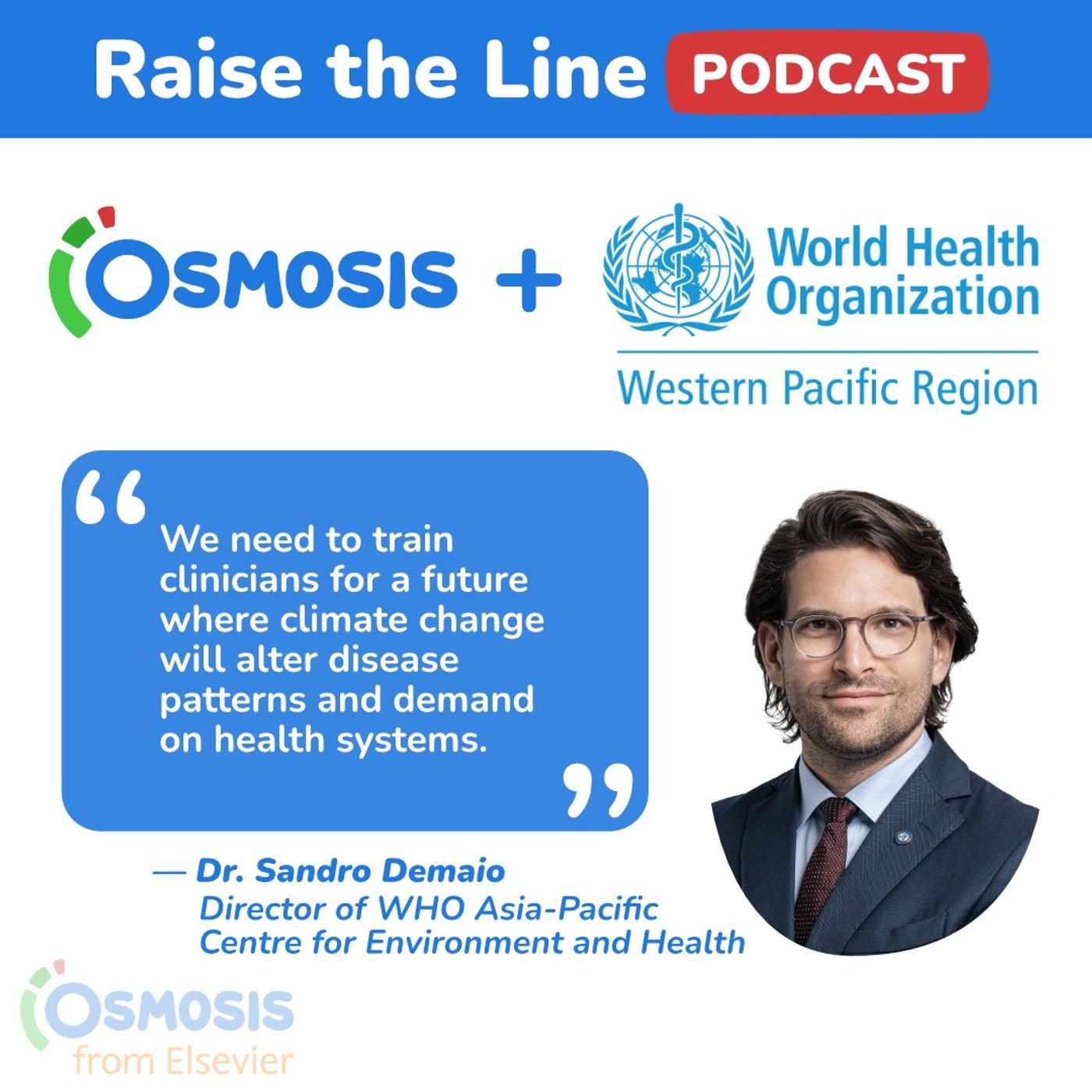
“Climate change is the biggest health threat of our century, so we need to train clinicians for a future where it will alter disease patterns, the demand on health systems, and how care is delivered,” says Dr. Sandro Demaio, director of the WHO Asia-Pacific Centre for Environment and Health, underscoring the stakes behind the organization’s first regionally-focused climate and health strategy. The five-year plan Dr. Demaio is leading aims to help governments in 38 countries with 2.2 billion people manage rising heat, extreme weather, sea-level change, air pollution and food insecurity by adapting health systems, protecting vulnerable populations, and reducing emissi...
A Passion for Human-Centered Care: Negeen Farsio, Graduate Student at Brunel University of London
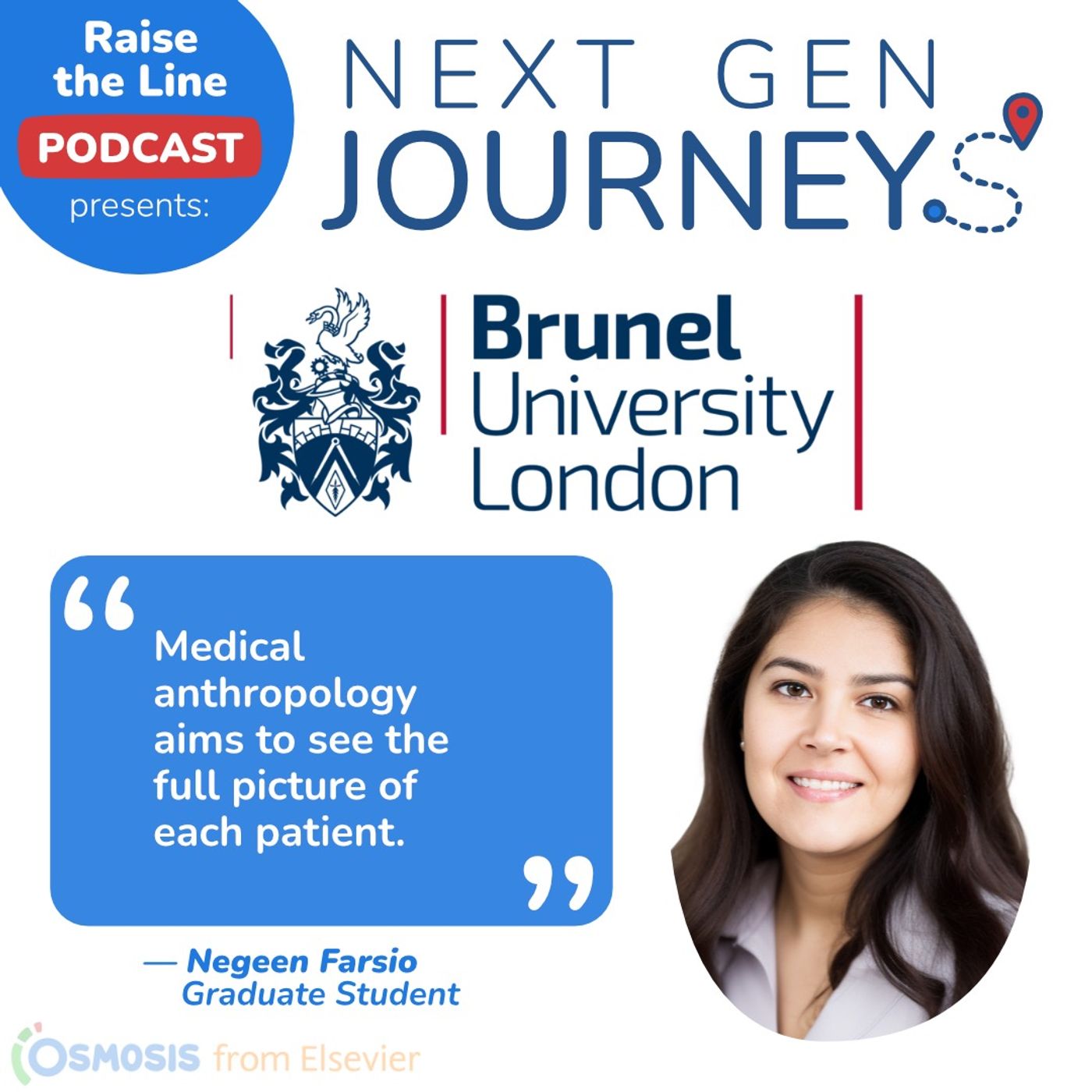
We have a special episode of Raise the Line on tap today featuring the debut of host Dr. Parsa Mohri, who will now be leading our NextGen Journeys series that highlights the fresh perspectives of learners and early career healthcare professionals around the world on education, medicine, and the future of care. Parsa was himself a NextGen guest in 2024 as a medical student at Acibadem University in Turkey. He’s now a general physician working in the Adult Palliative Care Department at Şişli Etfal Research and Training Hospital in Istanbul. Luckily for us, he’s also continuing in his rol...
Advancing Global Treatment of Cervical Cancer: Dr. Mary McCormack, University College London Hospitals
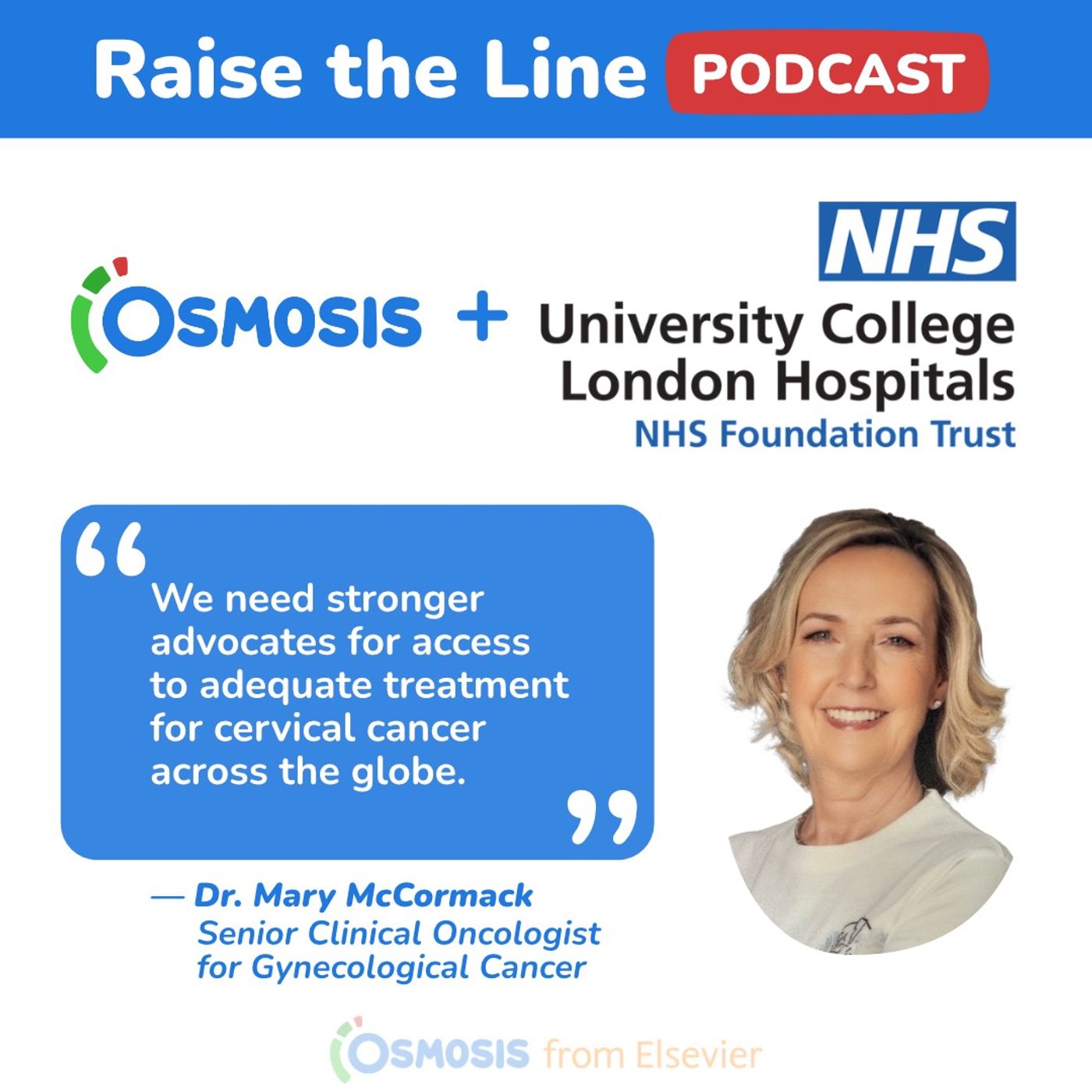
New research is transforming the outlook for cervical and uterine cancers -- two of the most serious gynecologic malignancies worldwide – and we’ll be hearing from one of the people shaping that progress, Dr. Mary McCormack, on this episode of Raise the Line. From her perch as the senior clinical oncologist for gynecological cancer at University College London Hospitals, Dr. McCormack has been a driving force in clinical research in the field, most notably as leader of the influential INTERLACE study, which changed global practice in the treatment of locally advanced cervical cancer, a key reason she was named to Time Magazi...
Training Healthcare Workers to Be “The Only One” In Crisis Settings: Dr. James Gough, CEO of The David Nott Foundation
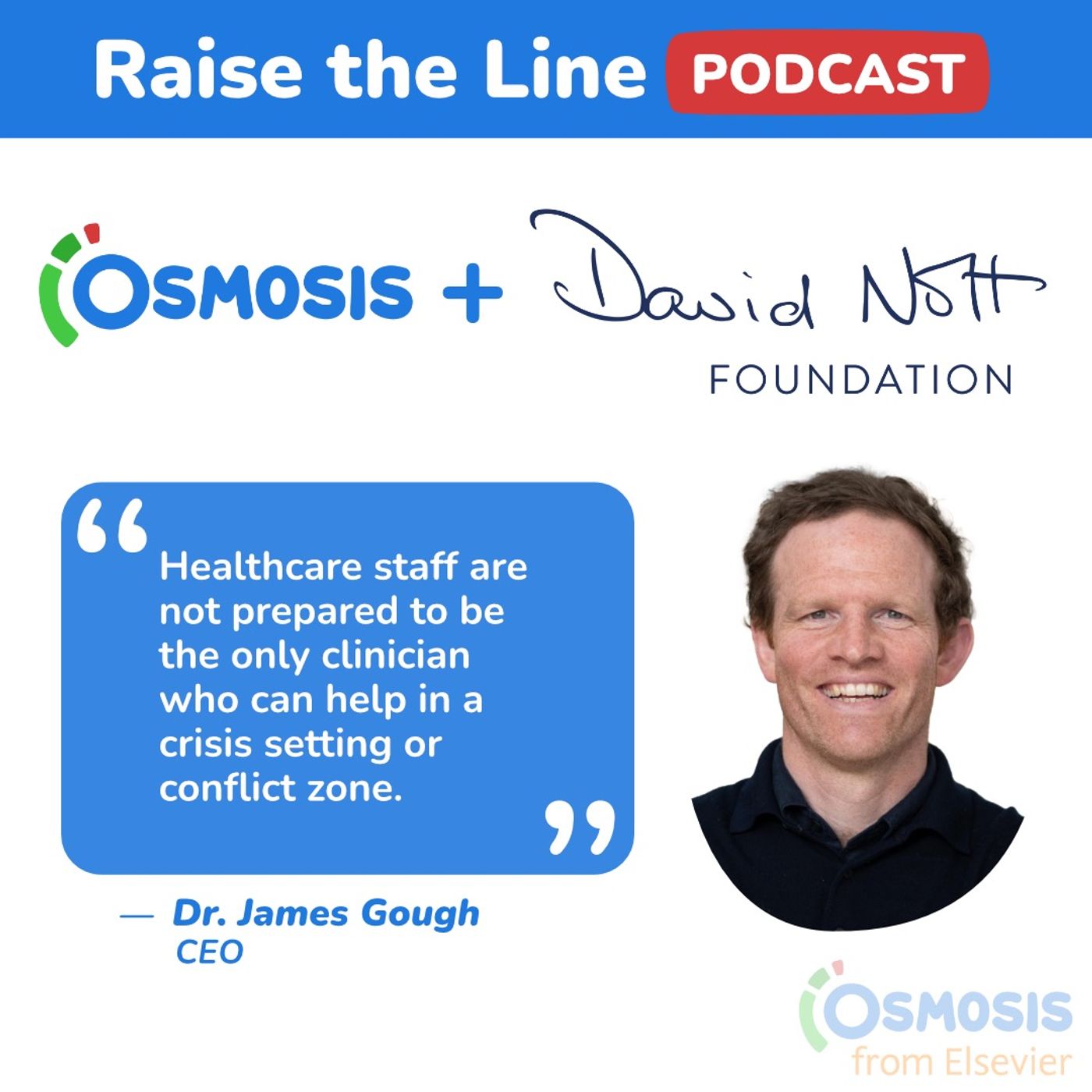
“The world is a very volatile place, with currently 110 conflicts globally, and yet healthcare staff in the hospitals, even here in London, are not prepared to be the only clinician who can help in a crisis or hostile setting,” says Dr. James Gough, CEO of the David Nott Foundation, which equips providers with the skills and confidence needed to function in war and other extraordinary situations. A former British Army doctor injured in Afghanistan, Gough brings lived experience as well as a background in tech to his current role at the Foundation, which itself is anchored in decades of fiel...
Helping People Understand Science Using the Science of Information: Jessica Malaty Rivera, Senior Science Communication Adviser at de Beaumont Foundation

“People are not looking for a perfect, polished answer. They're looking for a human to speak to them like a human,” says Jessica Malaty Rivera, an infectious disease epidemiologist and one of the most trusted science communicators in the U.S. to emerge from the COVID-19 pandemic. That philosophy explains her relatable, judgement-free approach to communications which aims to make science more human, more accessible and less institutional. In this wide-ranging Raise the Line discussion, host Lindsey Smith taps Rivera’s expertise on how to elevate science understanding, build public trust, and equip people to recognize disinformation. She is also k...
Aligning Investment in Family Medicine With Its Impact: Dr. Jen Brull, Board Chair of the American Academy of Family Physicians
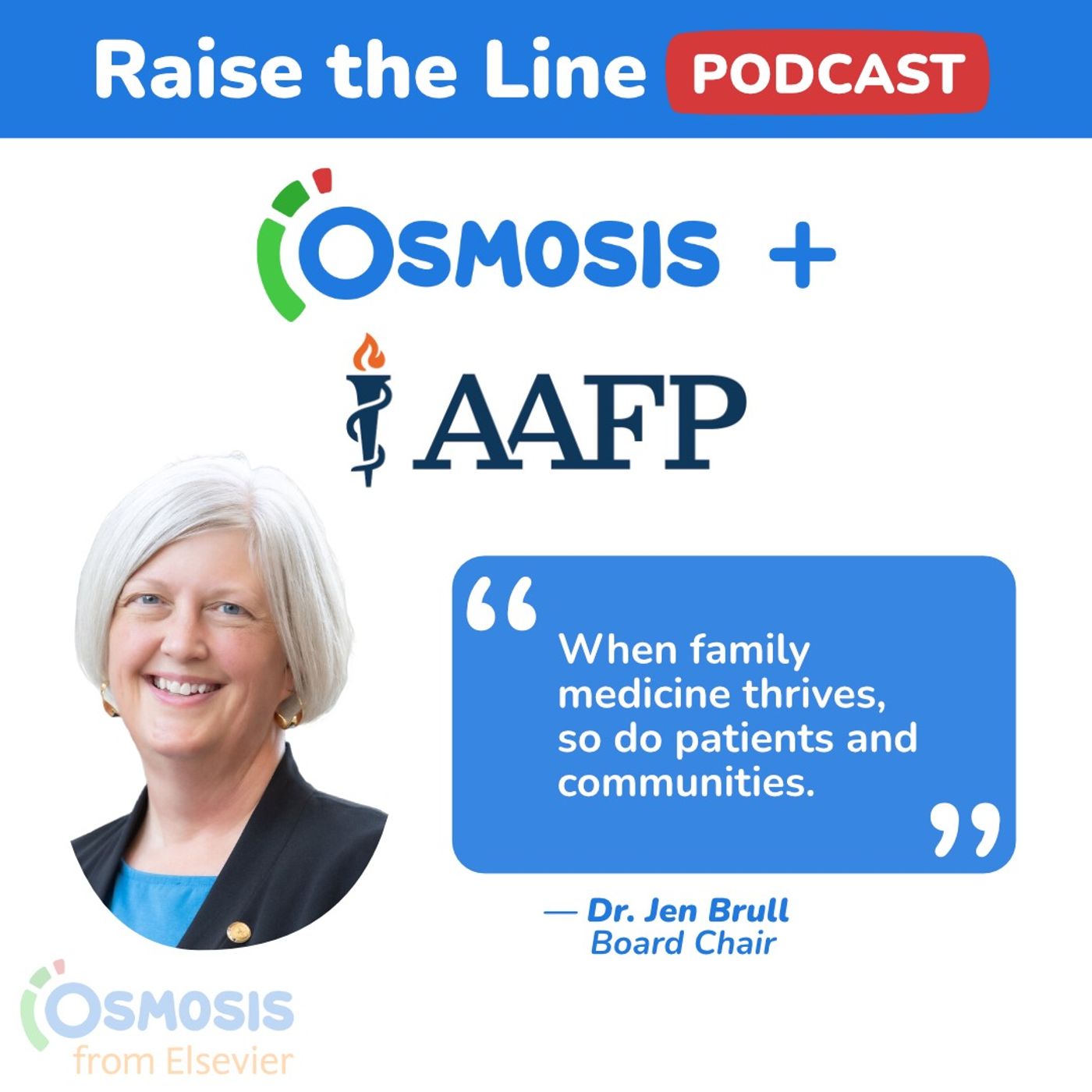
“Delivering a baby one day and holding a patient’s hand at the end of life literally the next day...that continuity is very powerful,” says Dr. Jen Brull, board chair of the American Academy of Family Physicians (AAFP). And as she points out, that continuity also builds trust with patients, an increasingly valuable commodity when faith in medicine and science is declining. As you might expect given her role, Dr. Brull believes strengthening family medicine is the key to improving health and healthcare. Exactly how to do that is at the heart of her conversation with host Lindsey Smith o...
Reimagining Public Health: Dr. Deb Houry, Former Chief Medical Officer at Centers for Disease Control and Prevention
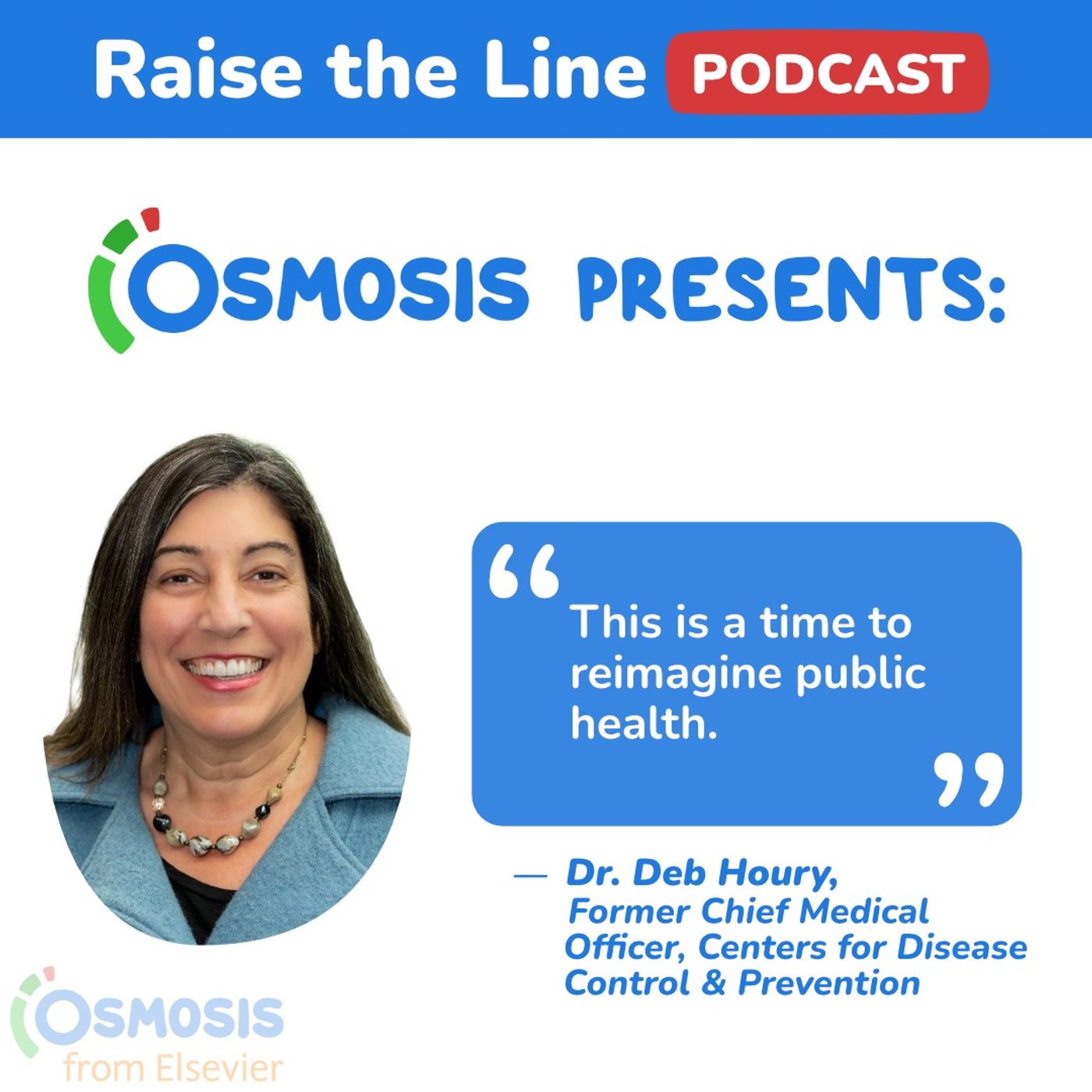
“This is a time to reimagine public health and public health/healthcare system integration,” says Dr. Deb Houry, the former chief medical officer for the US Centers for Disease Control and Prevention. In this thoughtful Raise the Line conversation, Dr. Houry reflects on unprecedented federal action in vaccine guidance and other issues since her noteworthy resignation from the CDC in August, and sees a more decentralized landscape emerging where states and localities play a larger role in providing public health recommendations. And while she acknowledges upsides to this shift, she’s also concerned what the absence of a national consen...
The Power of Empathy in Science Communication: Dr. Jess Steier, Founder of Unbiased Science
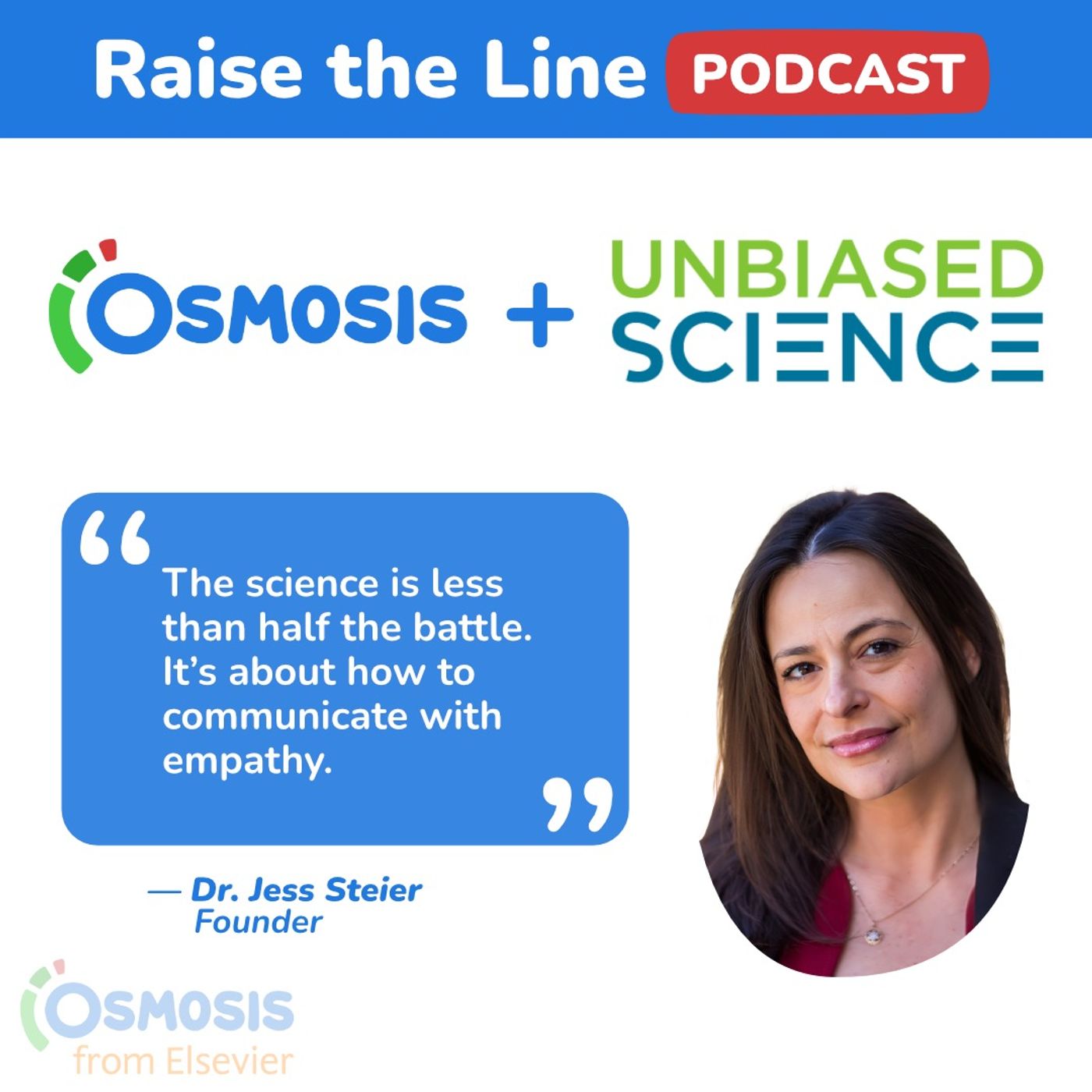
“My most powerful content is when I lead with my voice as a mom because I have the same concerns about keeping my kids safe as my audience does. It’s a powerful and effective way to find common ground with people,” says Dr. Jess Steier, a popular public health scientist and science communicator seeking to bridge divides and foster trust through empathetic, evidence-based communication. Dr. Steier has several platforms from which to do this work, including Unbiased Science -- a communication hub that uses multiple social media platforms and other communications channels to share validated health and science informat...
Amplifying Physician Voices Online: Dr. Kevin Pho, Founder of KevinMD
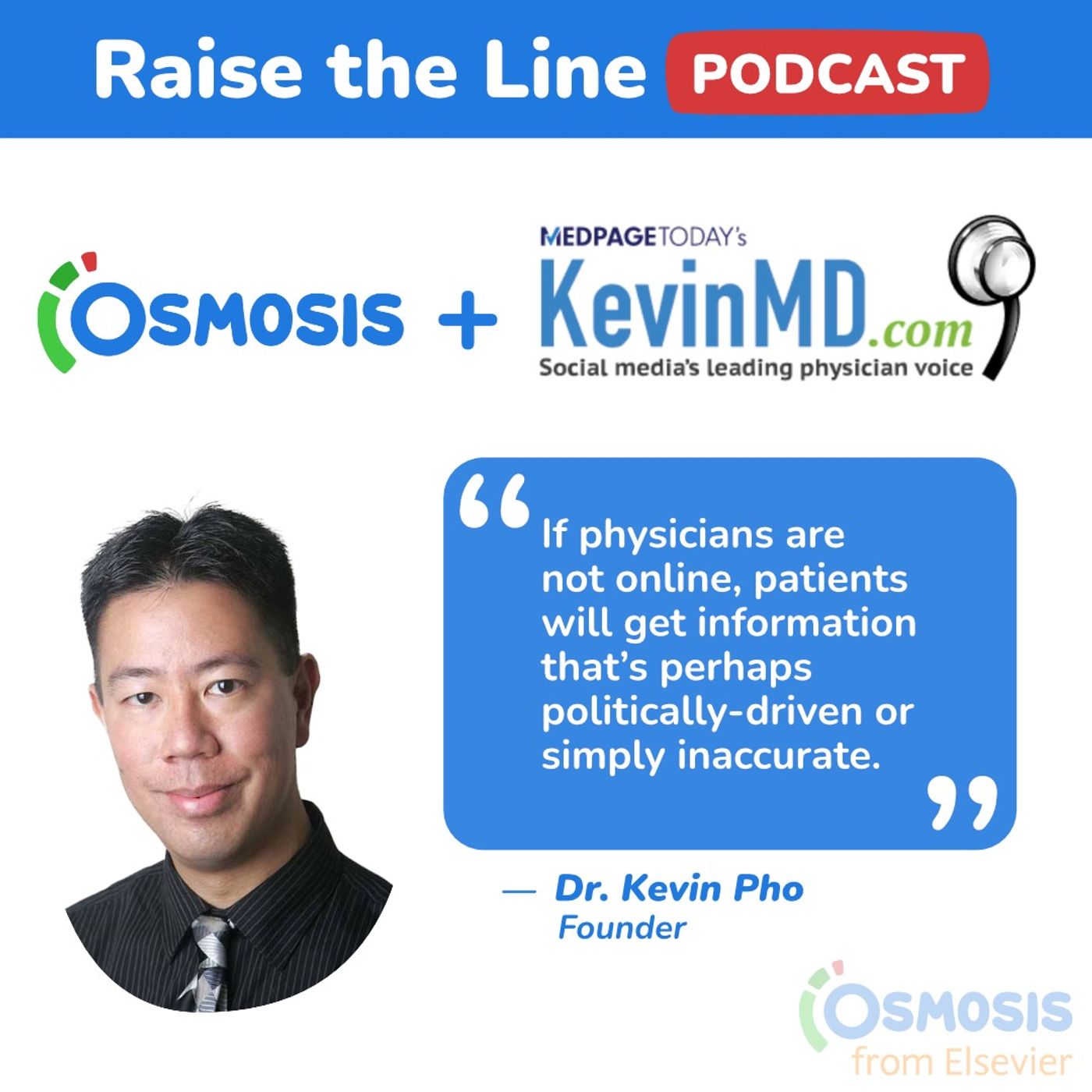
“I realized that rather than talking one-to-one with patients in the exam room, you could talk one-to-many on social media,” says Dr. Kevin Pho, explaining the origins of KevinMD, the highly influential information sharing site he created for physicians, medical students and patients twenty years ago. Since then, KevinMD has become a valuable space for clinicians and patients to share stories and perspectives on topics from burnout and moral injury to technology and trust. In this conversation with Raise the Line host Michael Carrese, Dr. Pho reflects on the dual paths that have defined his career: as a practicing inte...
Using Social Media to Rebuild Trust in Nutrition Science: Jessica Knurick, PhD, RDN
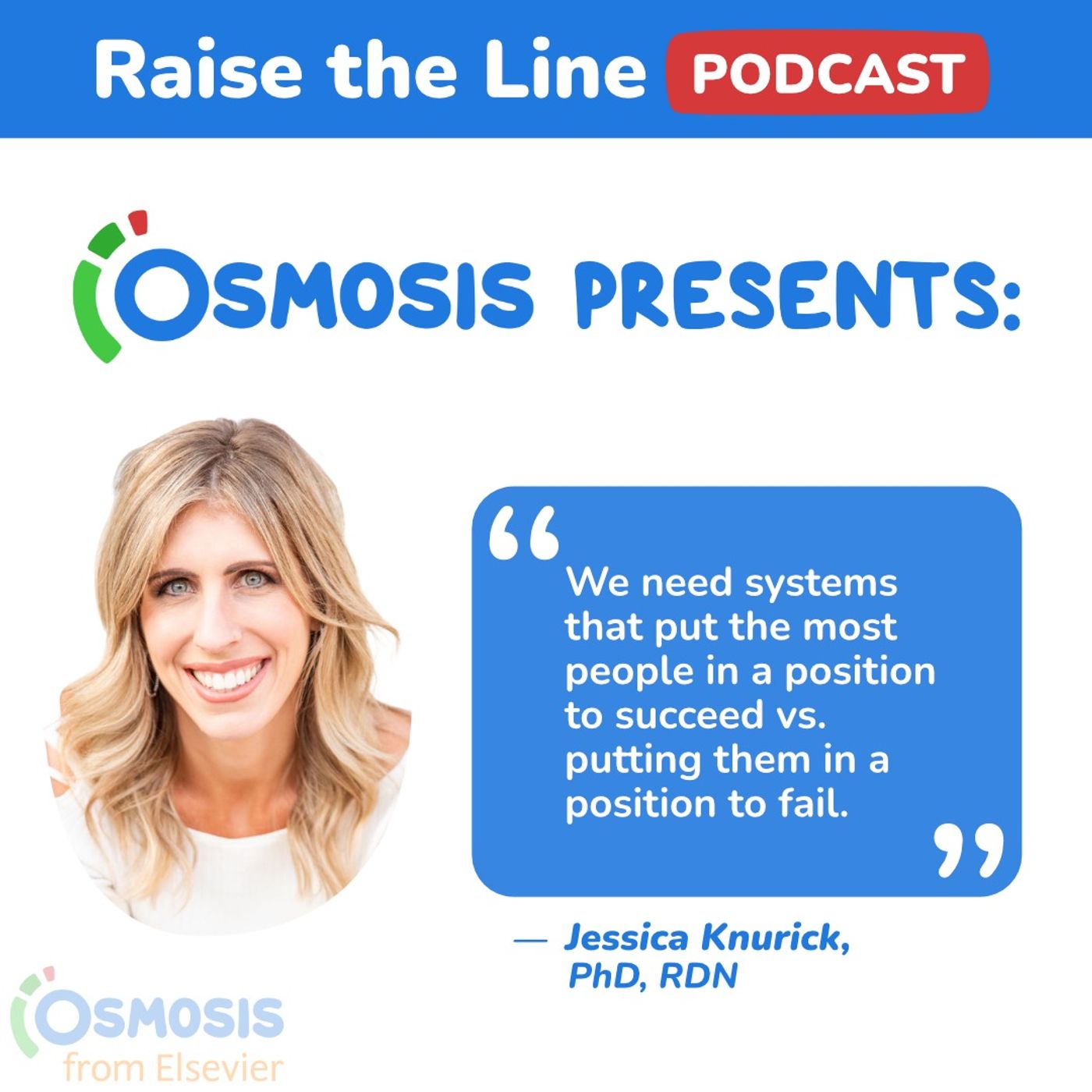
“We’ve created this ecosystem where the vast majority of information on social media, particularly in nutrition science, is inaccurate or misleading,” says Dr. Jessica Knurick, a registered dietitian and Ph.D. in nutrition science specializing in chronic disease prevention. As you’ll learn on this episode of Raise the Line with host Lindsey Smith, countering that trend has become Dr. Knurick’s focus in the past several years, and her talent for translating complex scientific information into practical guidance has attracted a large following on social media. Beyond equipping her audience with the tools to think critically and make infor...
What Restoring Extinct Species Means for Modern Medicine: Dr. Beth Shapiro, Chief Science Officer at Colossal Biosciences
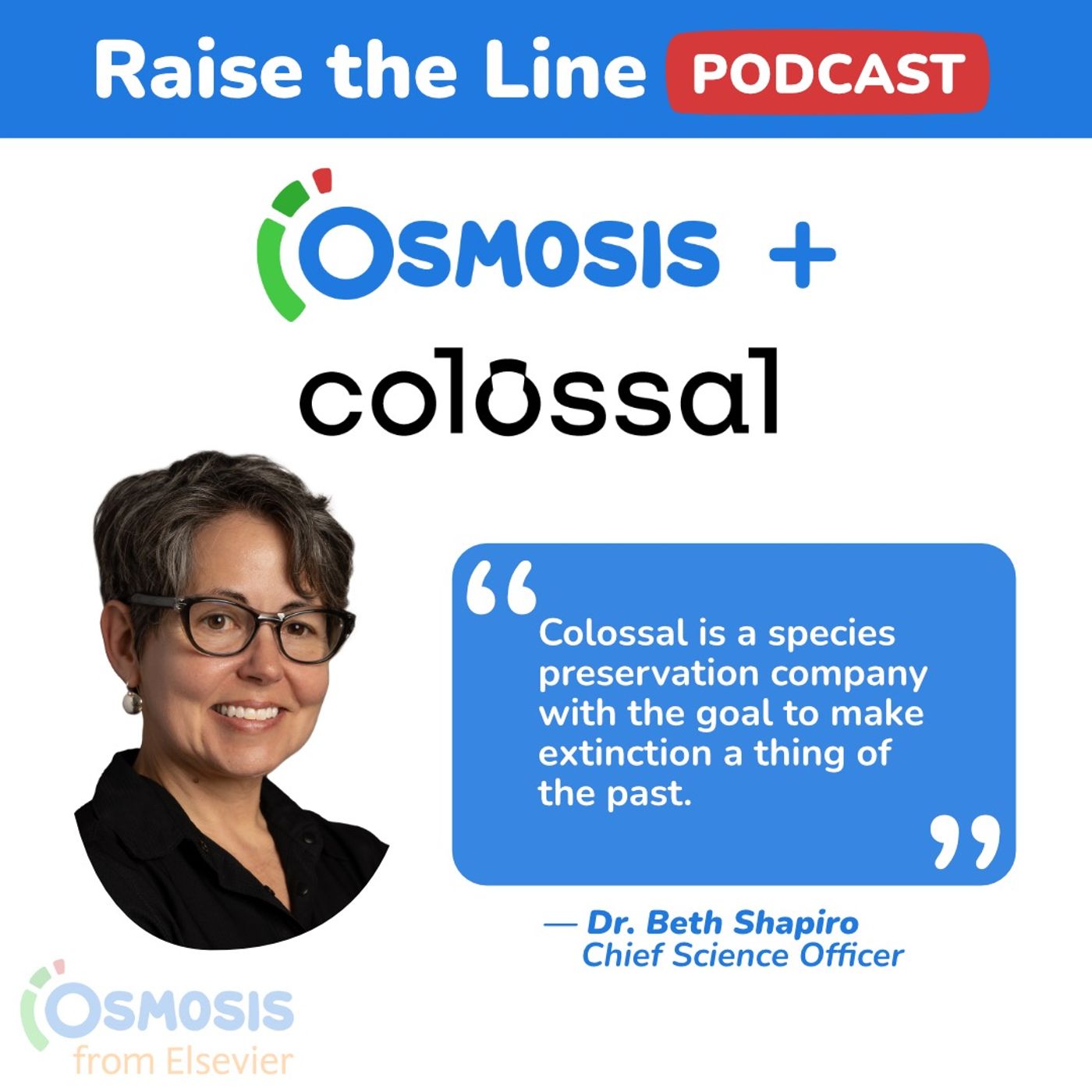
Could studying the DNA of extinct animals – or even bringing them back to life – help us save today’s endangered species and inform modern medicine? That may sound like the premise for a Hollywood movie, but it’s work that our Raise the Line guest, Dr. Beth Shapiro, is actually engaged in as Chief Science Officer at Colossal Biosciences, which describes itself as the world’s first and only de-extinction company. “It's not just about learning about the past. It's learning about the past so we have more validated scientific information that we can use to predict what we can do to bette...
Breaking Barriers to Leadership for Women in Medicine: Dr. Roopa Dhatt, Co-Founder of Women in Global Health
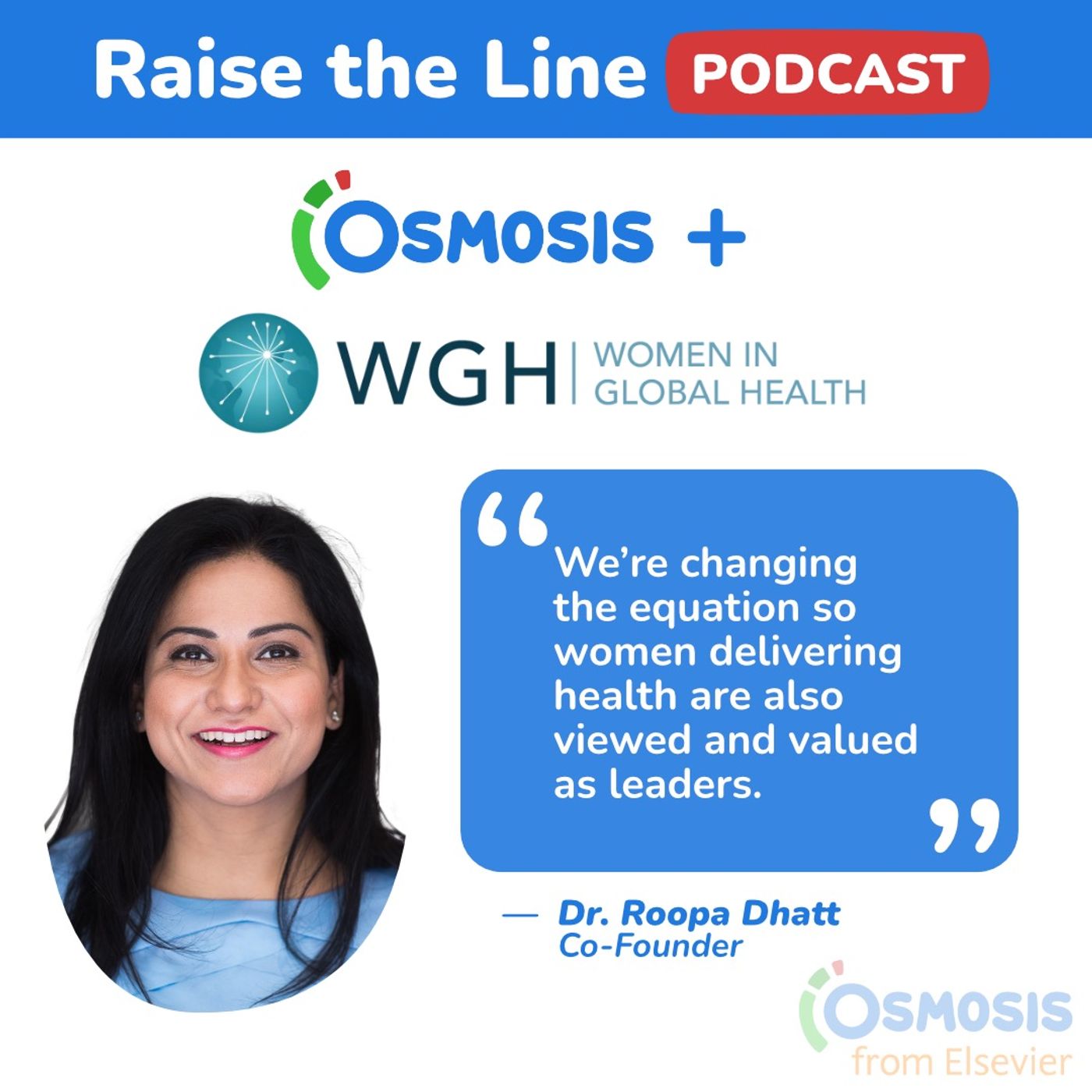
According to the Bloomberg School of Public Health at Johns Hopkins University, women make up 70% of the global healthcare workforce but hold only about 25% of leadership positions. Our guest today on Raise the Line, Dr. Roopa Dhatt, has been a leading voice in the movement to correct that imbalance through co-founding an organization called Women in Global Health (WGH), which has established chapters in over 60 countries since it started a decade ago. Dr. Dhatt is also pursuing that agenda and addressing other pressing issues in healthcare as a Young Global Leader at the World Economic Forum. “We’re changing the equat...
Expanding the Clinical Toolkit for Better Patient Care: Dr. Lanae Mullane, Head of Clinical Strategy at Joi + Blokes
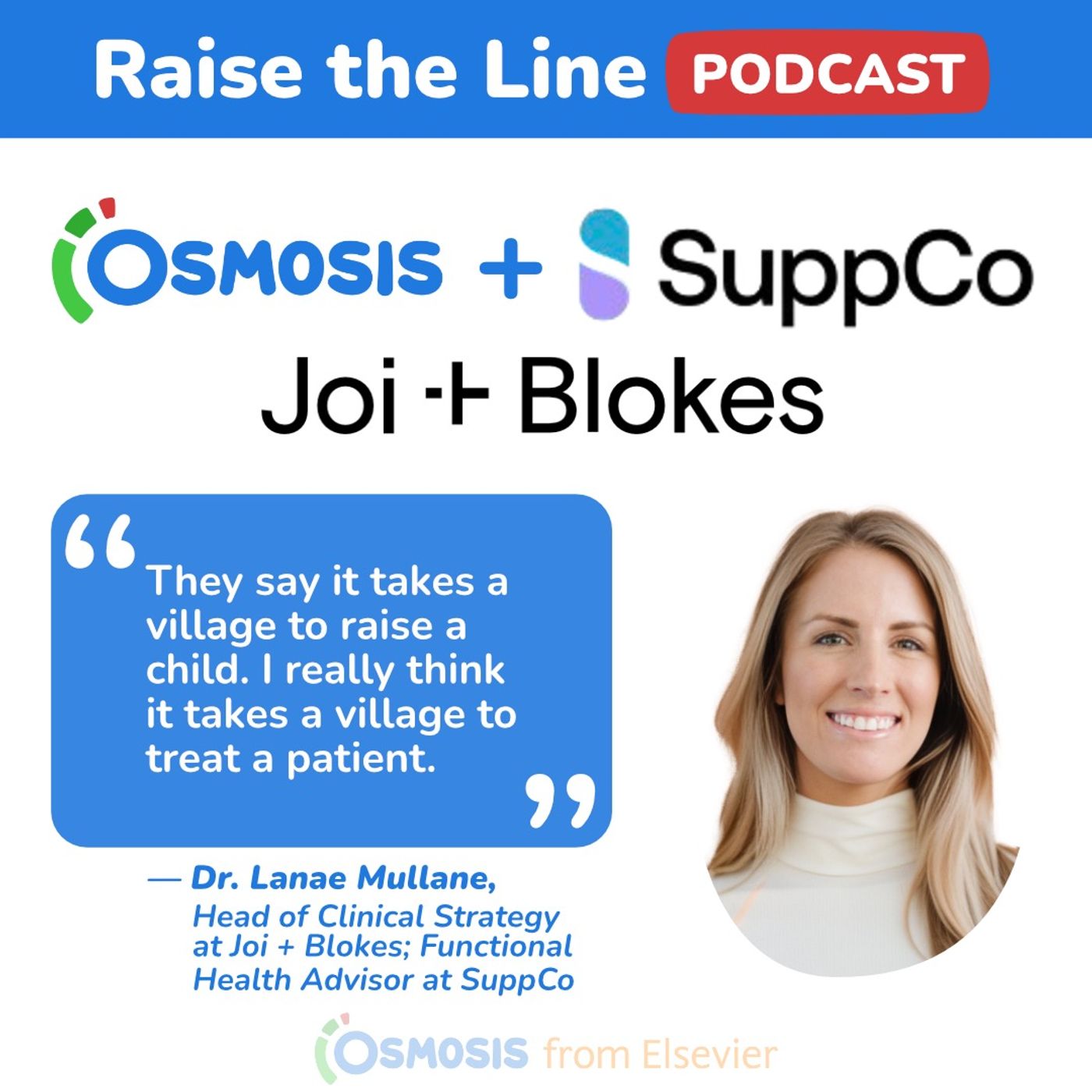
“They say it takes a village to raise a child. I really think it takes a village to treat a patient,” says Dr. Lanae Mullane, a naturopathic doctor and clinical strategist who has spent years at the forefront of bridging functional medicine, nutraceutical development, and digital health. In this episode of Raise the Line, host Lindsey Smith explores Dr. Mullane’s view that naturopathic medicine complements conventional care by expanding -- not replacing -- the clinical toolkit, and that collaboration should be the future of medicine. “At the end of the day, collaboration and connection create the best outcomes for the pe...
The Story Behind the ‘Miracle’ of GLP-1 Medications: Dr. John Buse, Chief of Endocrinology at University of North Carolina School of Medicine
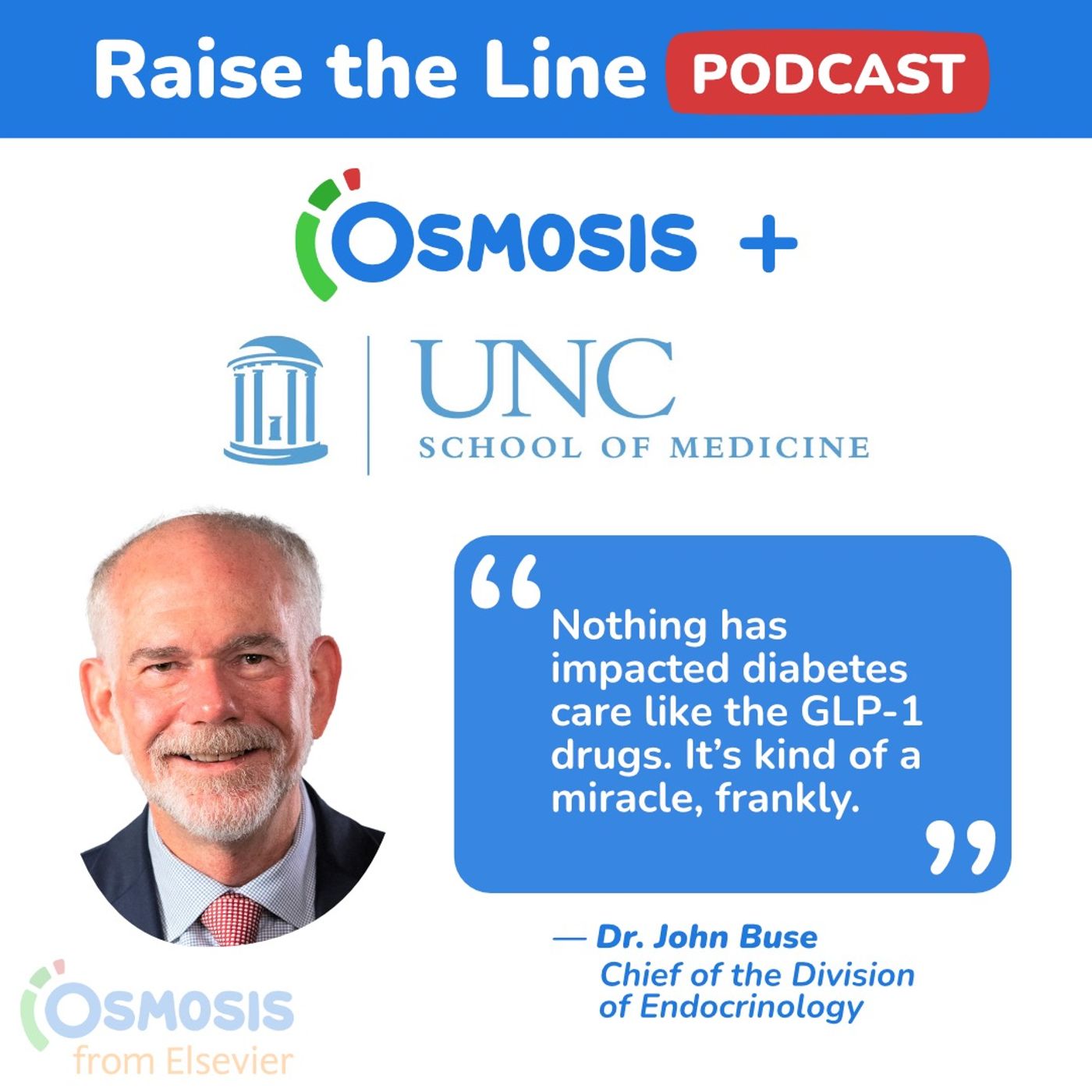
“It’s kind of a miracle, frankly,” says Dr. John Buse, a distinguished professor at the University of North Carolina School of Medicine, referring to the effectiveness of GLP-1 receptor agonist medications such as Ozempic in treating type 2 diabetes, promoting significant weight loss, and reducing cardiovascular risk. As a physician scientist for the last three decades at UNC, Dr. Buse has played a key role in ushering in this new era of diabetes care, leading or participating in over 200 clinical studies on this class of drugs and others. “Nothing has impacted diabetes care like the GLP-1 receptor agonists. I have lot...
A Global Perspective on Reshaping Psychiatric Care: Dr. Nasser Loza, Director of The Behman Hospital and Maadi Psychology Center
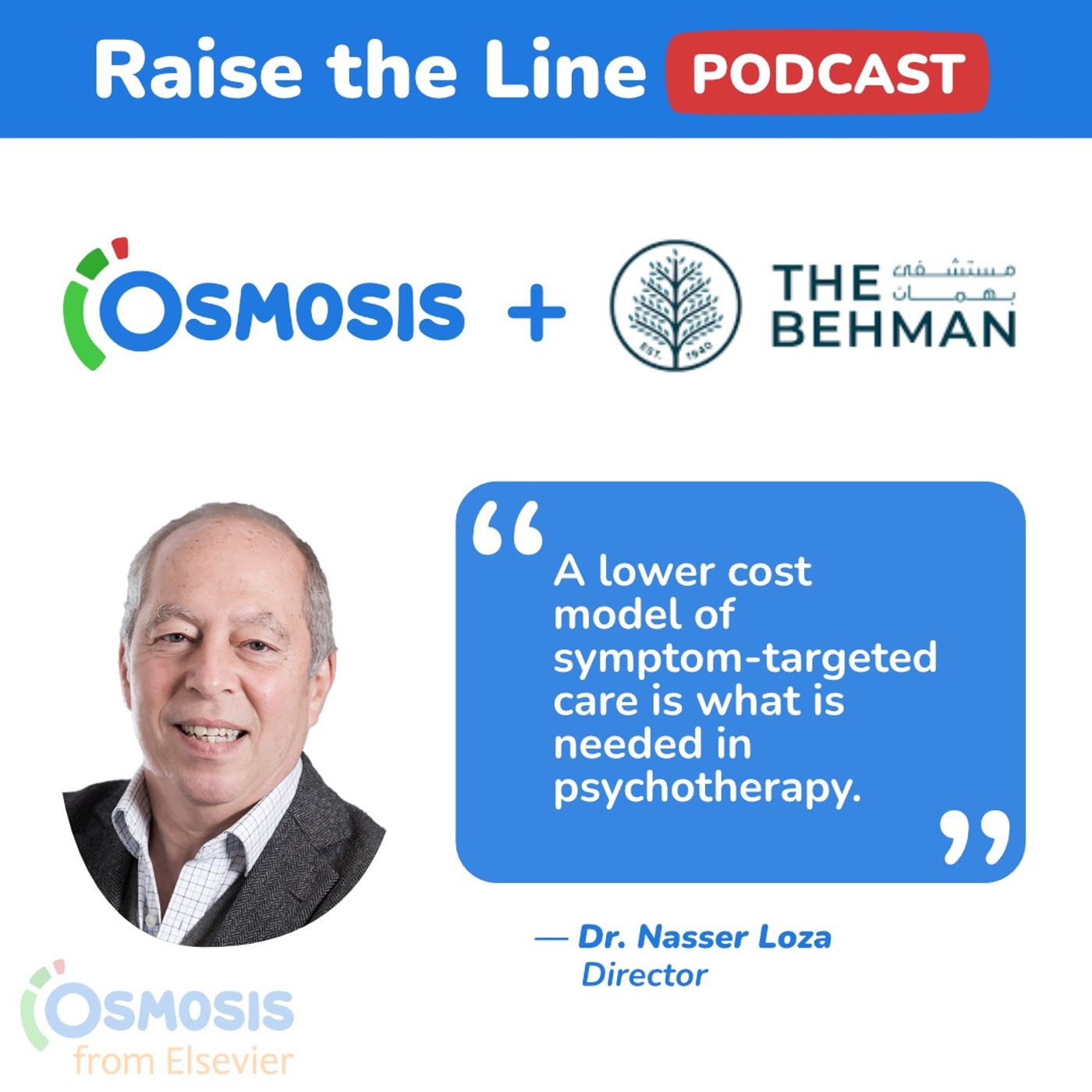
“It wasn’t a profession, it was a way of life,” observes internationally respected psychiatrist Dr. Nasser Loza, reflecting on a century-long family legacy in mental health care that began when his grandfather founded The Behman Hospital in Cairo. In this candid Raise the Line conversation with host Michael Carrese, Dr. Loza traces the transformation of psychiatry he’s witnessed in his long career as increases in classifications, payment bureaucracy, reliance on pharmaceuticals, and technological disruption have each left their mark. The cumulative costs associated with these changes have, he laments, pushed care out of reach for many and hindered th...
An Era of Progress in Pediatric Neurodegenerative Diseases: Dr. Mary Kay Koenig, UTHealth Houston McGovern Medical School
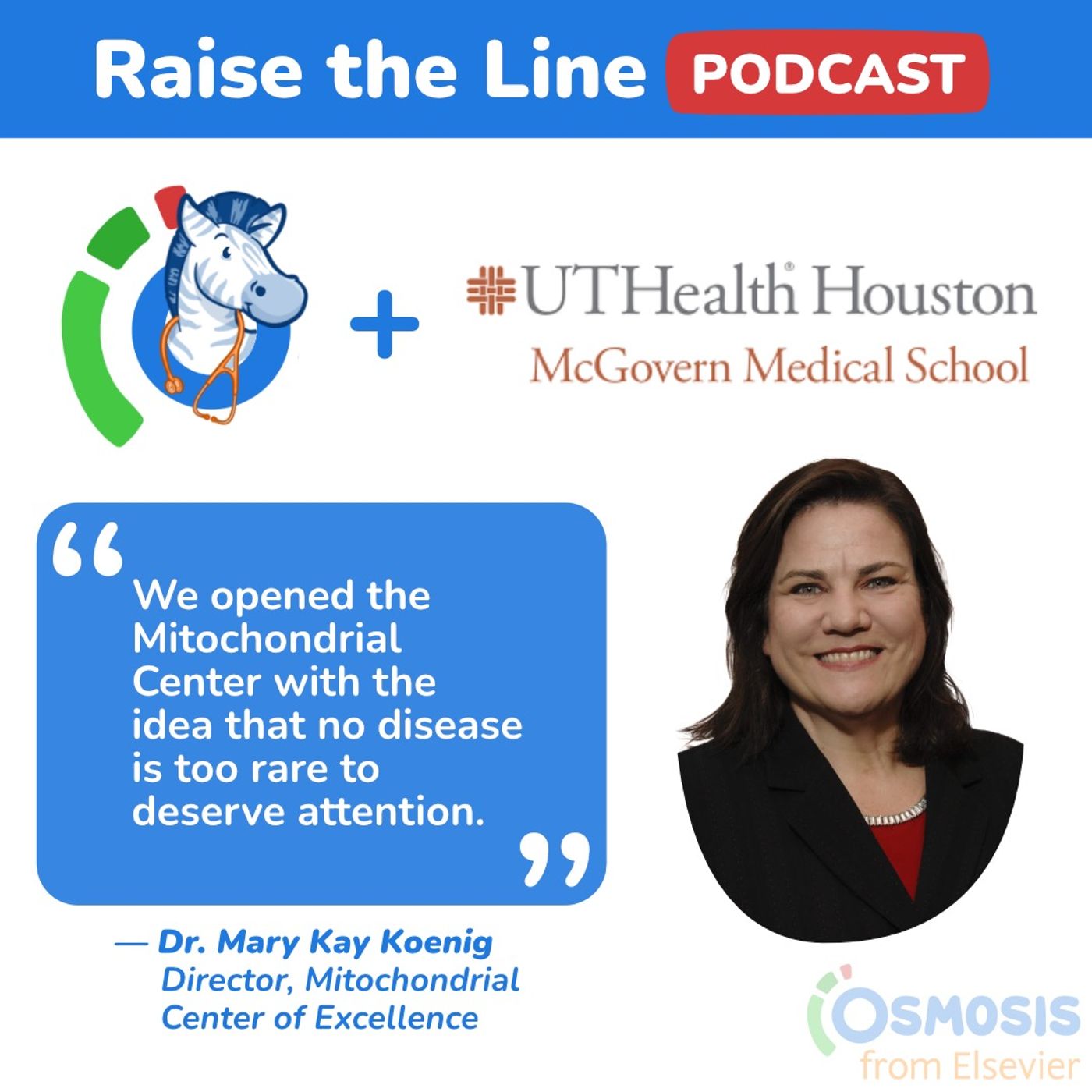
“When I was in medical school, no one had even heard of mitochondrial disease. Today, every student who graduates here knows what it is and has seen a patient with it,” says Dr. Mary Kay Koenig, director of the Center for the Treatment of Pediatric Neurodegenerative Disease at UTHealth Houston McGovern Medical School. That remarkable change in awareness has been accompanied by advances in genetic sequencing, the development of clinical guidelines, and the emergence of potential treatments in some forms of mitochondrial disease. In fact, Dr. Koenig’s multidisciplinary team at UTHealth’s Mitochondrial Center of Excellence has been a key pl...
How Immersive Technology Is Changing Medical Education: Sean Moloney, CEO and Founder of EmbodyXR
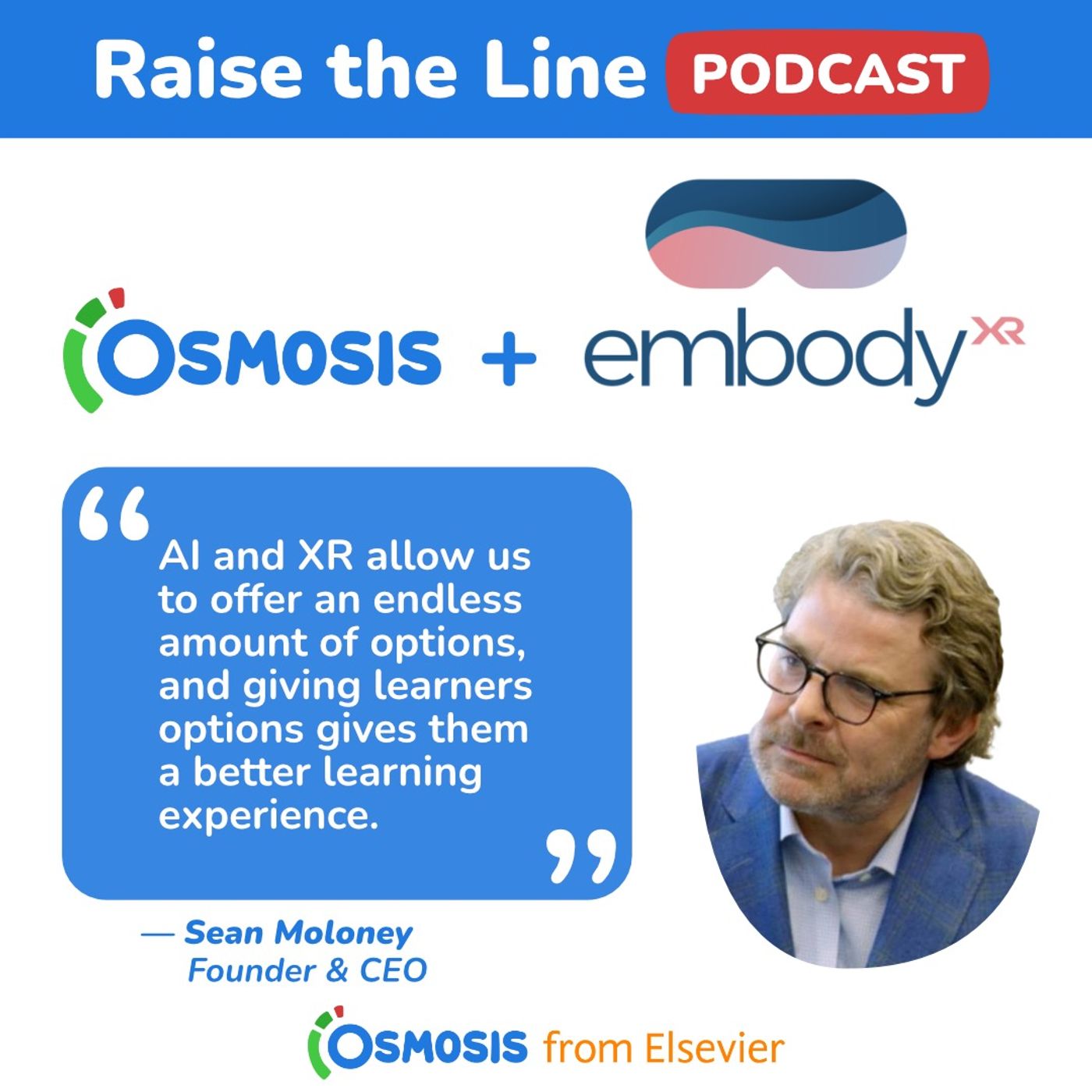
“Giving learners options gives them a better learning experience. It’s more holistic and more comprehensive,” says Sean Moloney, CEO and founder of EmbodyXR, an extended reality platform focused on the use of immersive technologies in medical education. In this eye-opening Raise the Line conversation, Moloney explains how AI-powered extended reality (XR) --which integrates augmented, virtual, and simulation-based environments -- allows learners to interact with patients, explore multiple diagnostic choices, and experience varied outcomes based on their decisions. The result, he notes, is not only stronger engagement in learning, but a measurable improvement in understanding. Despite these gains, Moloney is quic...
Centering Harm Reduction in Addiction Treatment: Dr. Melody Glenn, Associate Professor of Addiction and Emergency Medicine at University of Arizona College of Medicine-Tucson
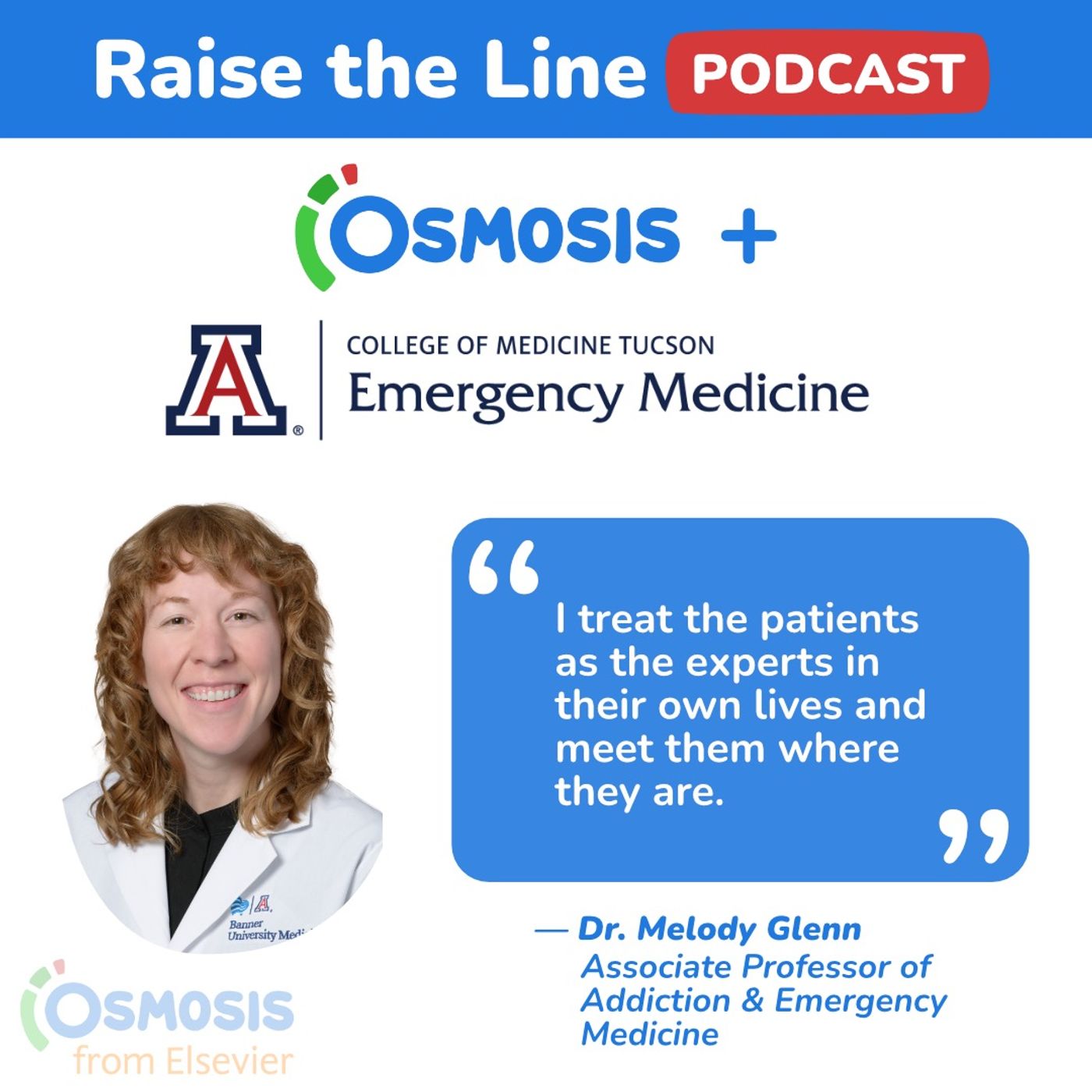
Why has America struggled so much to effectively manage the opioid use crisis? One of the answers, as you’ll learn in this eye-opening episode of Raise the Line, is rooted in laws and attitudes from the early 20th century that removed addiction from the realm of medicine and defined it as a moral failing. “The federal Harrison Act of 1914 forbade any physician from prescribing opioids to people with addiction, so it became more the purview of law enforcement or behavioral health or religion,” says Dr. Melody Glenn, who regularly confronts the consequences of this history during shifts in the eme...
A New Model for Chronic Pain Treatment is Needed: Dr. Jacob Hascalovici, Co-Founder and Medical Director of Bliss Health
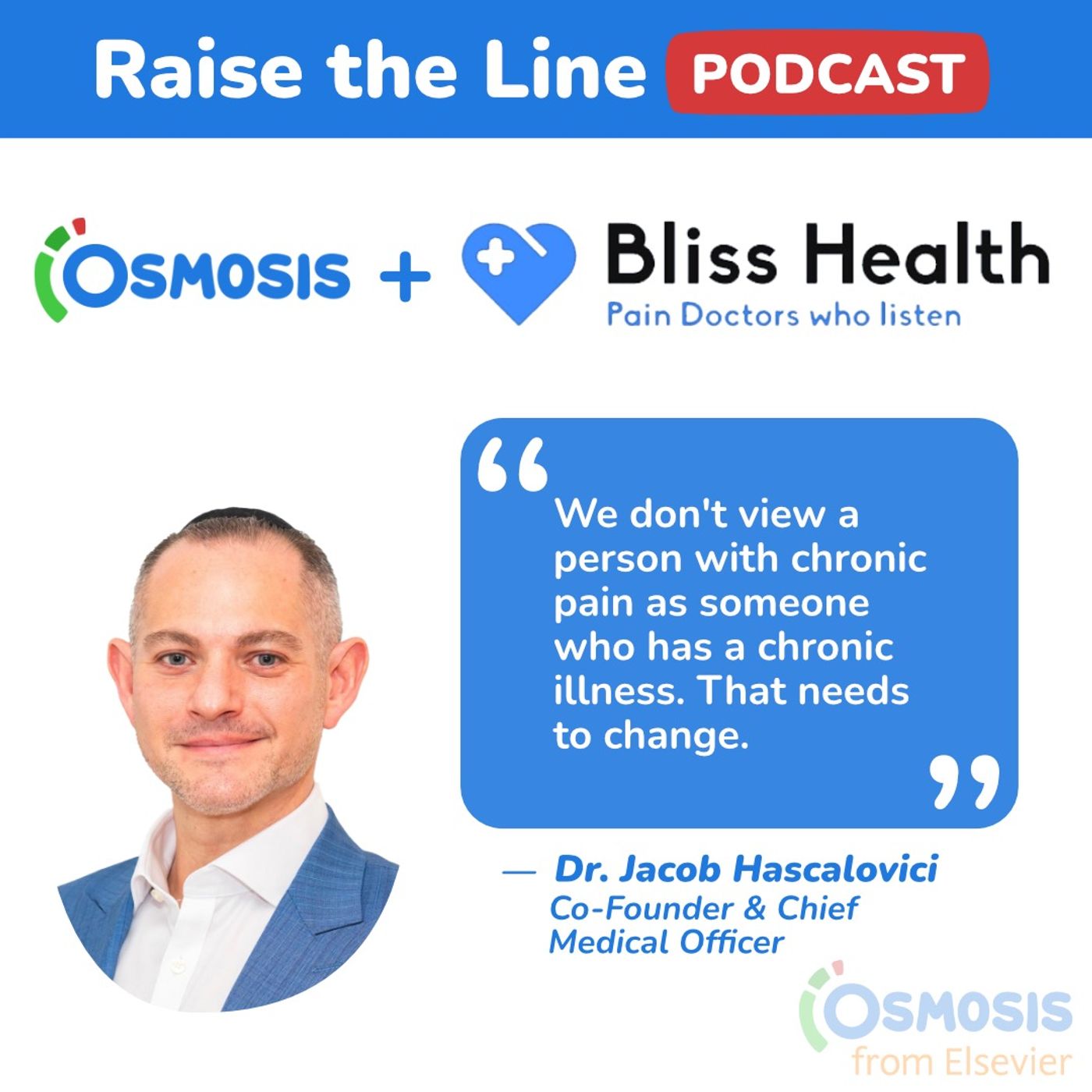
“We don't view a person with chronic pain as someone who has a chronic illness and the effect of that is we can't follow patients continuously over prolonged periods of time,” says Dr. Jacob Hascalovici, a neurologist and pain specialist based in New York City. In co-founding Bliss Health, Dr. Jacob, as he is known, has set out to create a continuous care model for chronic pain treatment that matches the approach taken for patients with diabetes or high blood pressure. The Bliss Health formula includes an initial meeting with a physician that produces a care plan; remote therapeutic monit...
A Challenging Time for Public Health: Dr. Georges Benjamin, Executive Director of the American Public Health Association
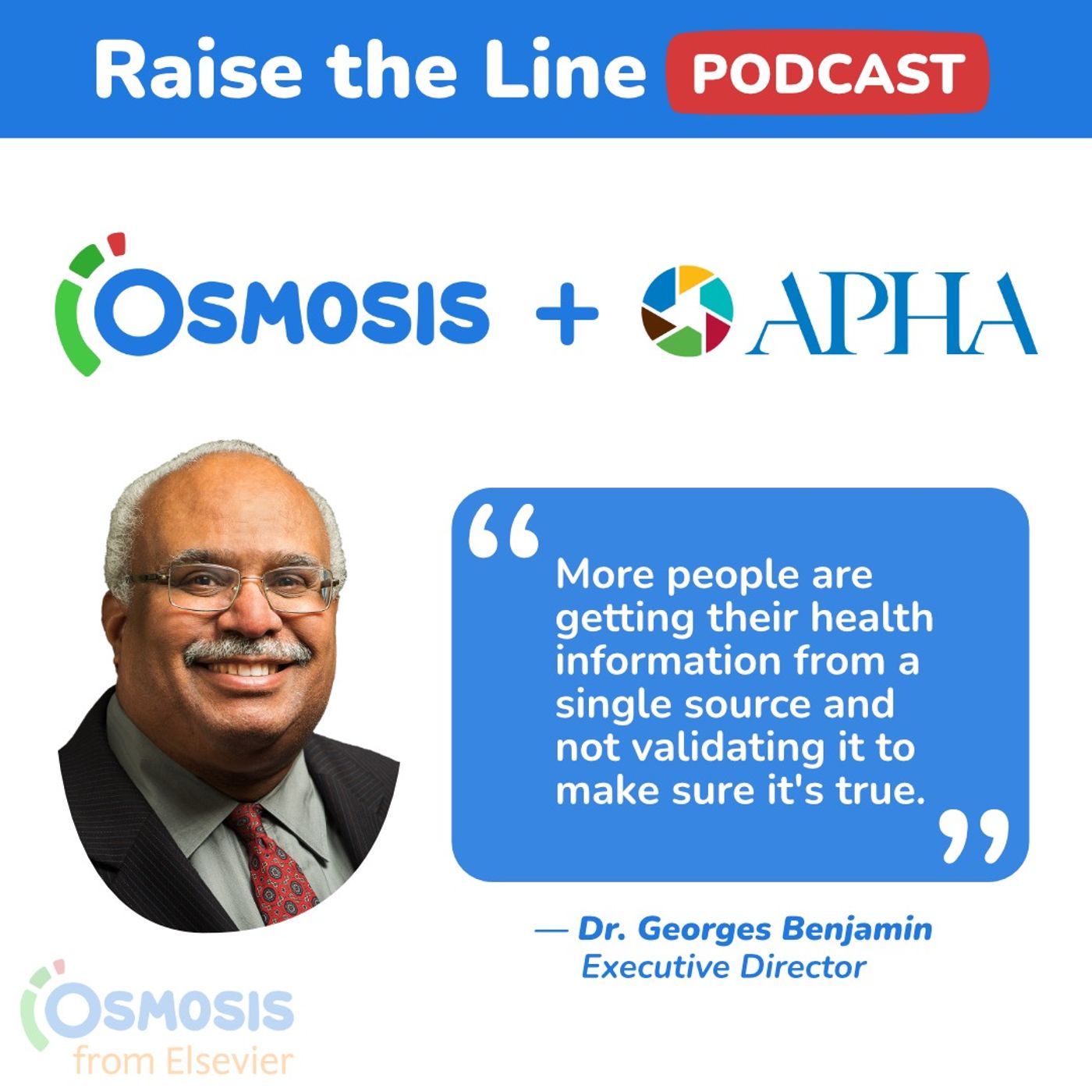
In recent months, public health advocates in the United States have raised concerns about proposed changes to vaccine policy, cuts to food assistance programs, rollbacks of environmental protections and reductions in public health staffing. Chief among them has been Dr. Georges Benjamin who, as executive director of the American Public Health Association (APHA) since 2002, has led national efforts to create a healthier America. Raise the Line host Lindsey Smith recently sat down with Dr. Benjamin to understand more about the current state of public health and explore the path forward, and learned that a top priority for APHA is...
A Transformational Time for Rare Disorders is Coming: Dr. Jessica Duis, VP of Clinical Development at GondolaBio
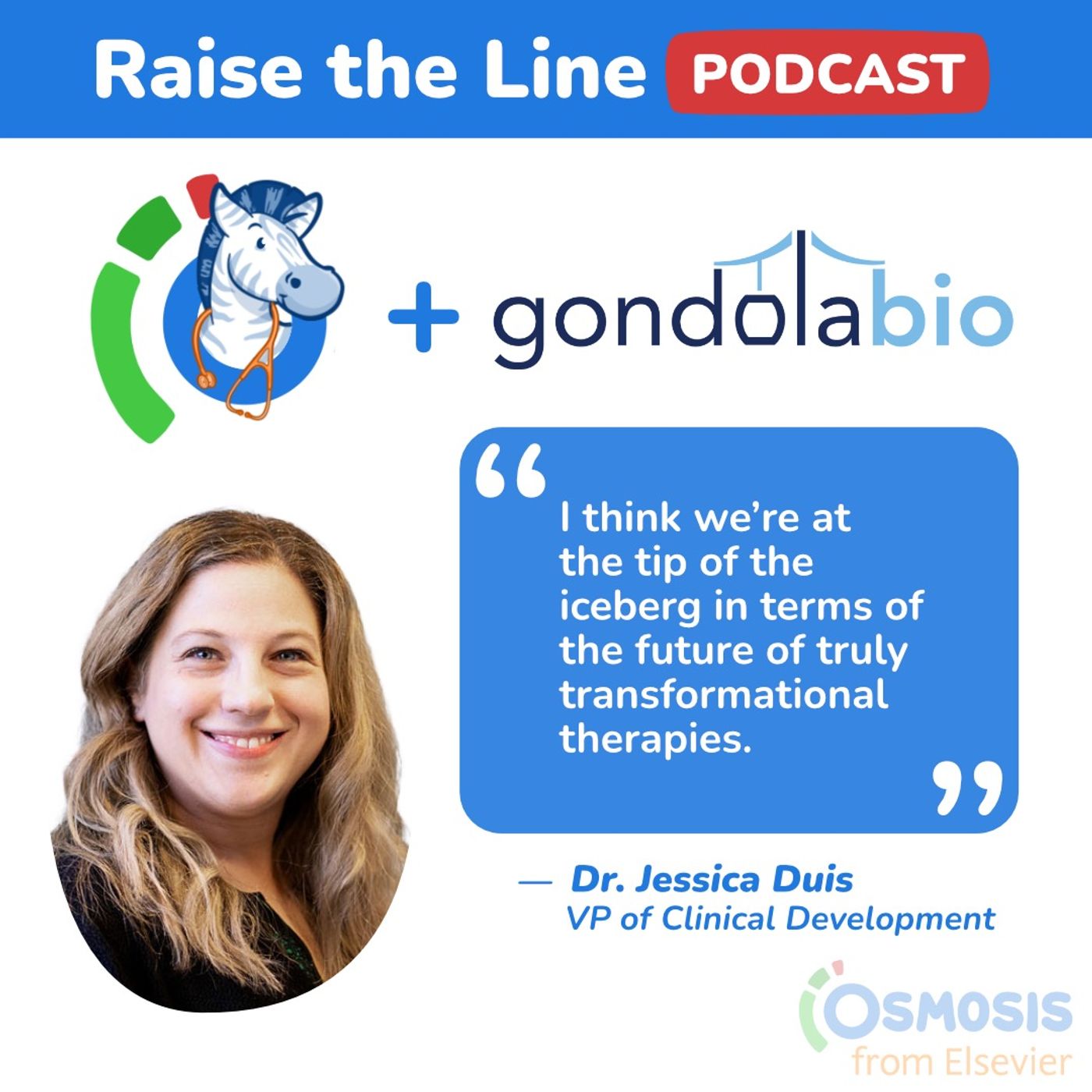
“Probably the most exciting thing I've seen in gene therapy over the last ten years is we now have a lot of tools for selective delivery, which will hopefully make treatments more safe and a lot more successful,” says Dr. Jessica Duis, a geneticist and pediatrician focused on the management of individuals with complex, rare disorders. Dr. Duis, who has worked on several gene therapies that are now approved or progressing through the accelerated approval pathway, is currently VP of Clinical Development at GondolaBio, a clinical-stage biopharmaceutical company focused on developing therapeutics for genetic diseases.
As you’ll learn...
Advances in Medicine Require More Specialization for NICU Nurses: Lindsay Howard, NICU RNC-NIC at Children's Memorial Hermann Hospital
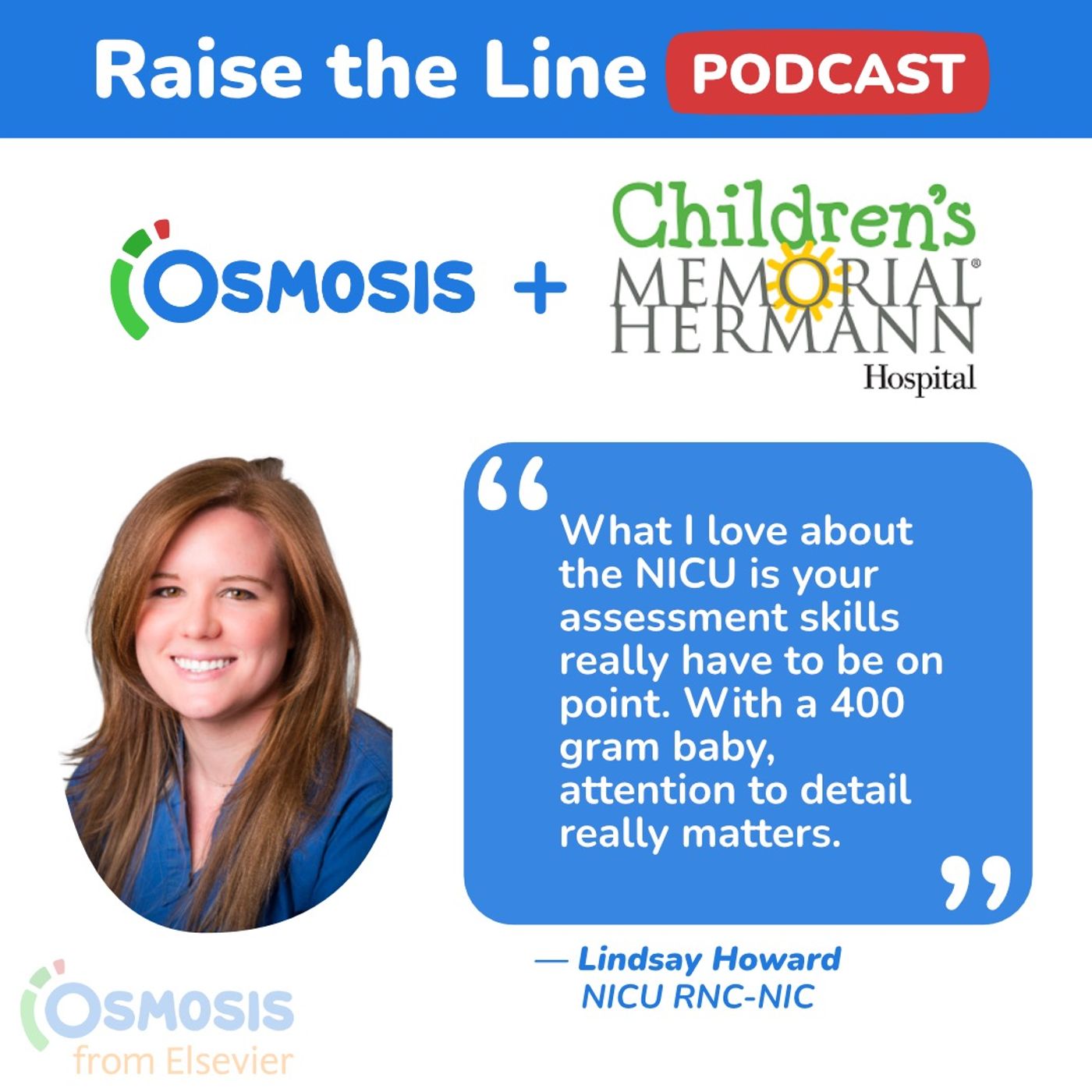
With nearly one in ten newborns in the US requiring care in a Neonatal Intensive Care Unit, the importance of NICUs has never been more clear. On today's episode of Raise the Line, we're shining a light on the extraordinary world of NICUs with Lindsay Howard, a veteran nurse with over 17 years of experience caring for premature and critically ill infants. She currently works in a Level IV NICU at Children's Memorial Hermann Hospital in Houston, one of the most advanced neonatal units in the country. “We call ourselves ‘the ER of the neonate world’ because we're never full. We hav...
What’s At Stake In Changes To Medicare and Medicaid: Chiquita Brooks-LaSure, Senior Fellow at The Century Foundation
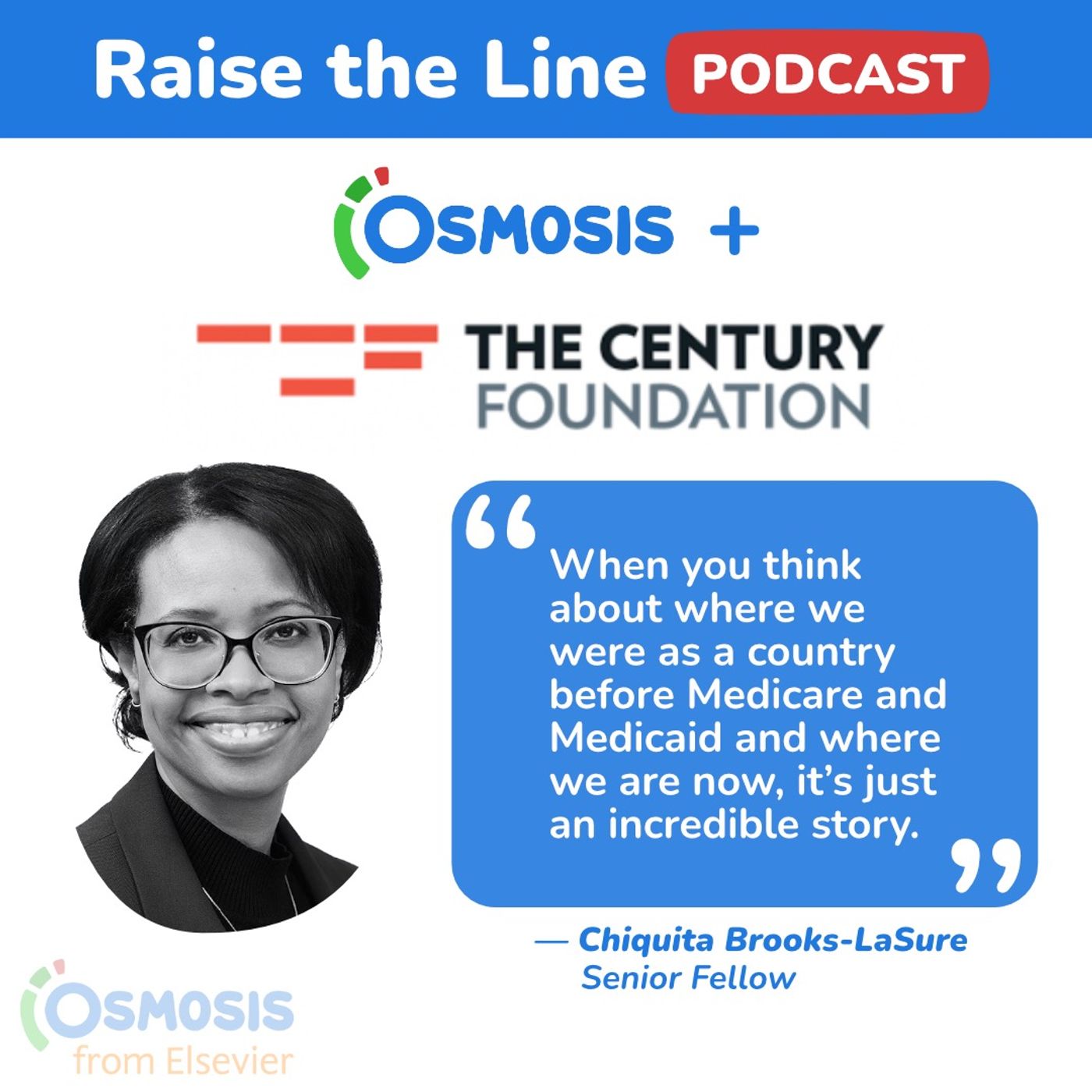
“When you think about where we were as a country before Medicare and Medicaid were created and where we are now, it’s an incredible story,” says Chiquita Brooks-LaSure, who until earlier this year was the administrator for the Centers for Medicare and Medicaid Services (CMS). In a recent essay for The Century Foundation, where she is now a senior fellow, Brooks-LaSure used the 60th anniversary of enactment of those foundational insurance programs to help put their impact on individual Americans, the healthcare system and society at large in perspective. One prominent example is the desegregation of hospitals, which was ac...
Expanding the Gene Therapy Toolbox: Dr. Bobby Gaspar, Co-Founder & CEO of Orchard Therapeutics
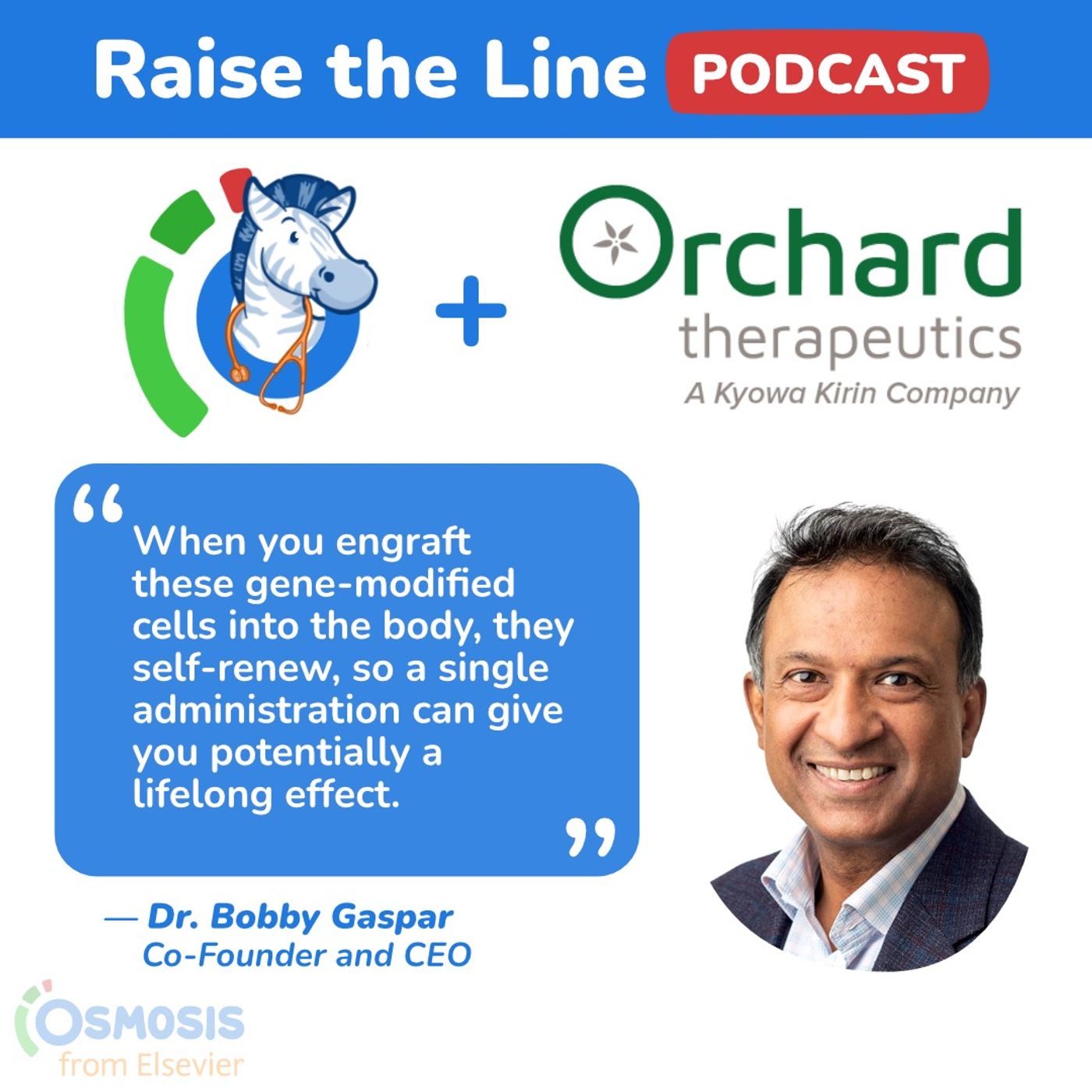
It seems there are news stories every week about the accelerating pace of innovation in gene therapy, but only about 50 therapies have been approved so far by the US Food and Drug Administration. Our guest today, Dr. Bobby Gaspar, leads a UK-based biotech company, Orchard Therapeutics, that developed one of those treatments using gene-modified stem cells in your blood that self-renew, so a single administration can give you potentially a lifelong effect. “Our approach is about correcting those hematopoietic stem cells and allowing them to give rise to cells that can then correct the disease,” explains Dr. Gaspar. The thera...
Rare Disease Patients as Changemakers in Medicine: Rebecca Salky, Senior Clinical Research Coordinator for the Neuroimmunology Clinic & Research Lab at Massachusetts General Hospital
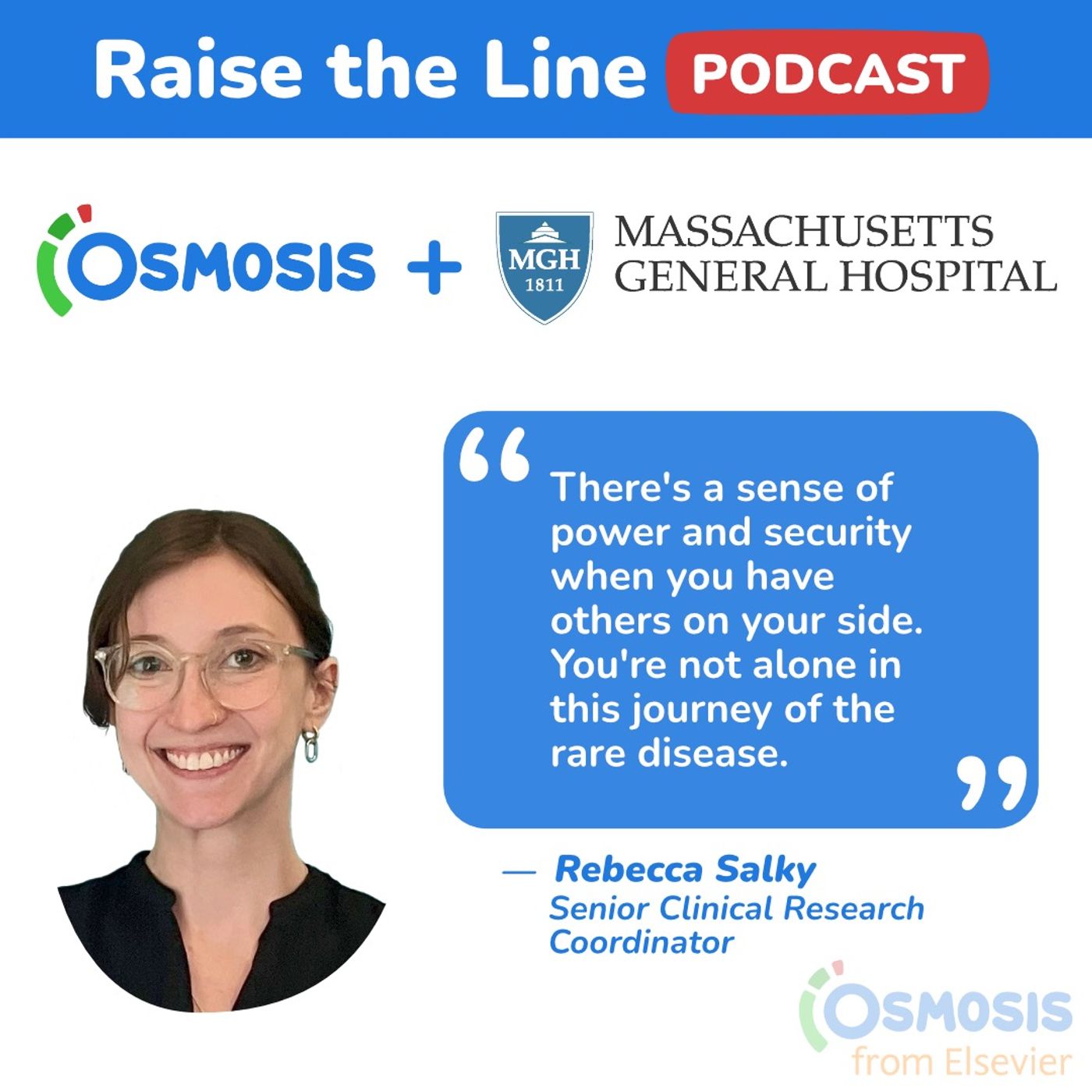
You are in for a dose of inspiration in this episode of Raise the Line as we introduce you to a rare disease patient who was a leading force in establishing the diagnosis for her own condition, who played a key role in launching the first phase three clinical trials for it, and who is now coordinating research into the disease and related disorders at one of the nation's top hospitals. Rebecca Salky, RN, was first afflicted at the age of four with MOGAD, an autoimmune disorder of the central nervous system that can cause paralysis, vision loss and s...
Providing a Framework for Personal and Professional Growth in Medicine: Dr. David Kelly, HOSA-Future Health Professionals Board Chair
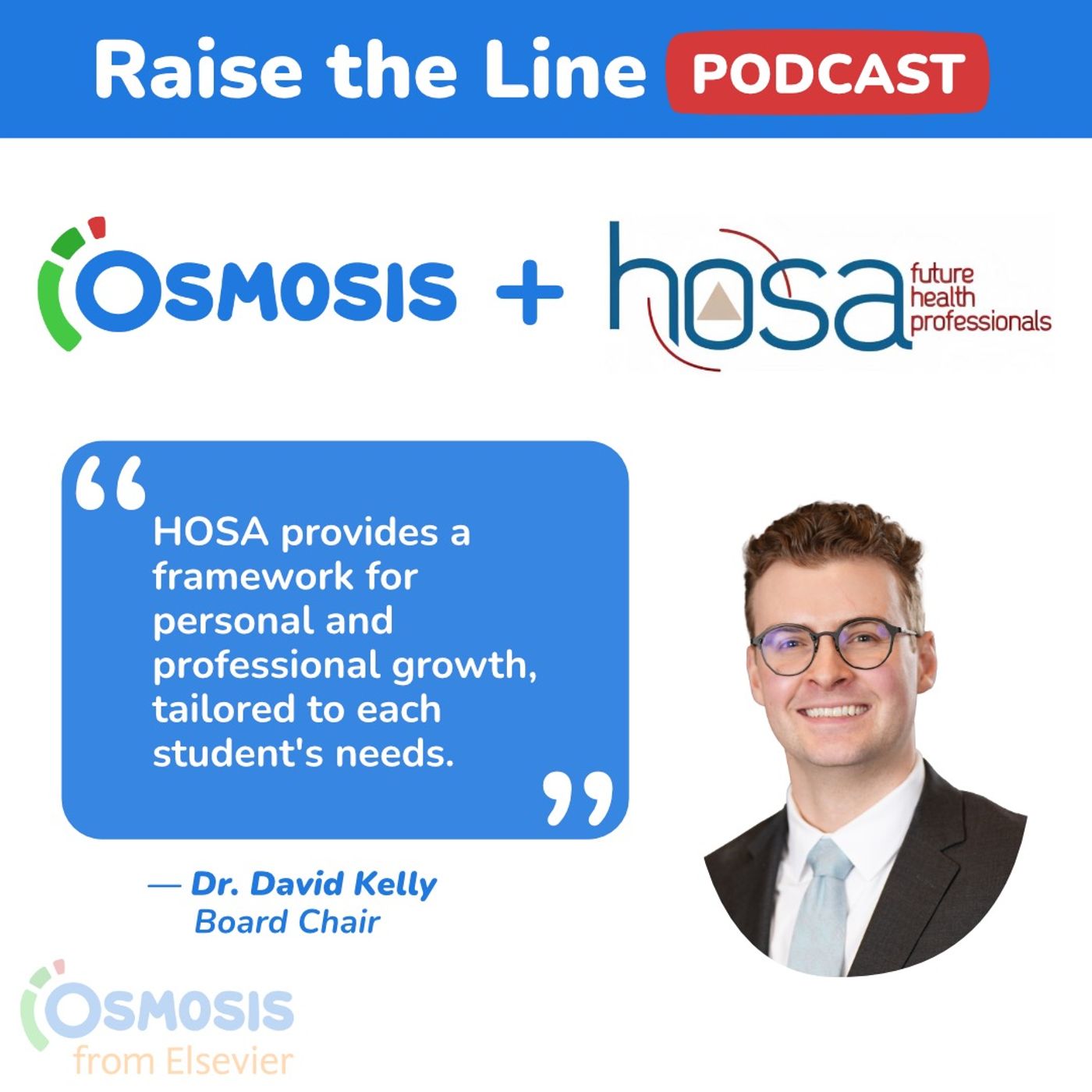
“You have to love what you do, especially in healthcare, and the earlier you find that, the better. So that’s why I love to see HOSA helping young people find what it is that they want to do,” says Dr. David Kelly, a fellow in oculofacial surgery at University of California San Francisco and HOSA’s board chair. You can still hear the excitement in Dr. Kelly’s voice describing his earliest experiences with HOSA -- a student led organization with 300,000 plus members that prepares future health professionals to become leaders in international health – even though they happened sixteen year...
How AI Is Aiding Earlier Diagnosis of Autism: Dr. Geraldine Dawson, Founding Director of the Duke Center for Autism and Brain Development
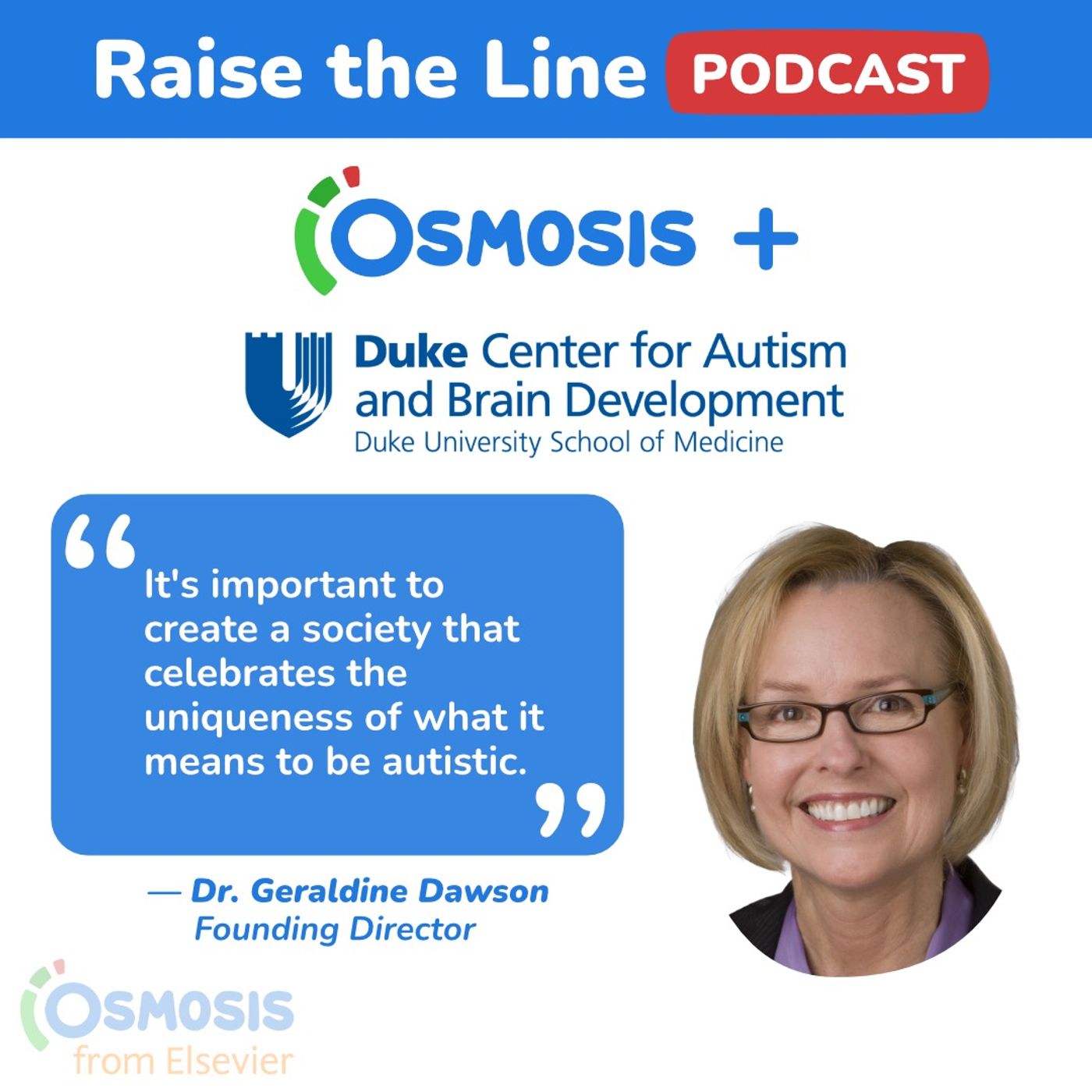
“We've been able to show that even by 30 days of age, we can predict with some accuracy if a child is going to have a diagnosis of autism,” says Dr. Geraldine Dawson, sharing one of the recent advancements in early diagnosis being aided by artificial intelligence. Dr. Dawson -- a leading scholar in the field and founding director of the Duke Center for Autism and Brain Development – explains that an AI examination of a child’s pattern of visits to medical specialists in its very early life is an objective diagnostic tool that can supplement the current subjective reports from pare...
Addressing the Root of Burnout and Trauma in Healthcare Providers: Dr. Rola Hallam, Founder of CanDo and Trauma and Burnout Life Coach
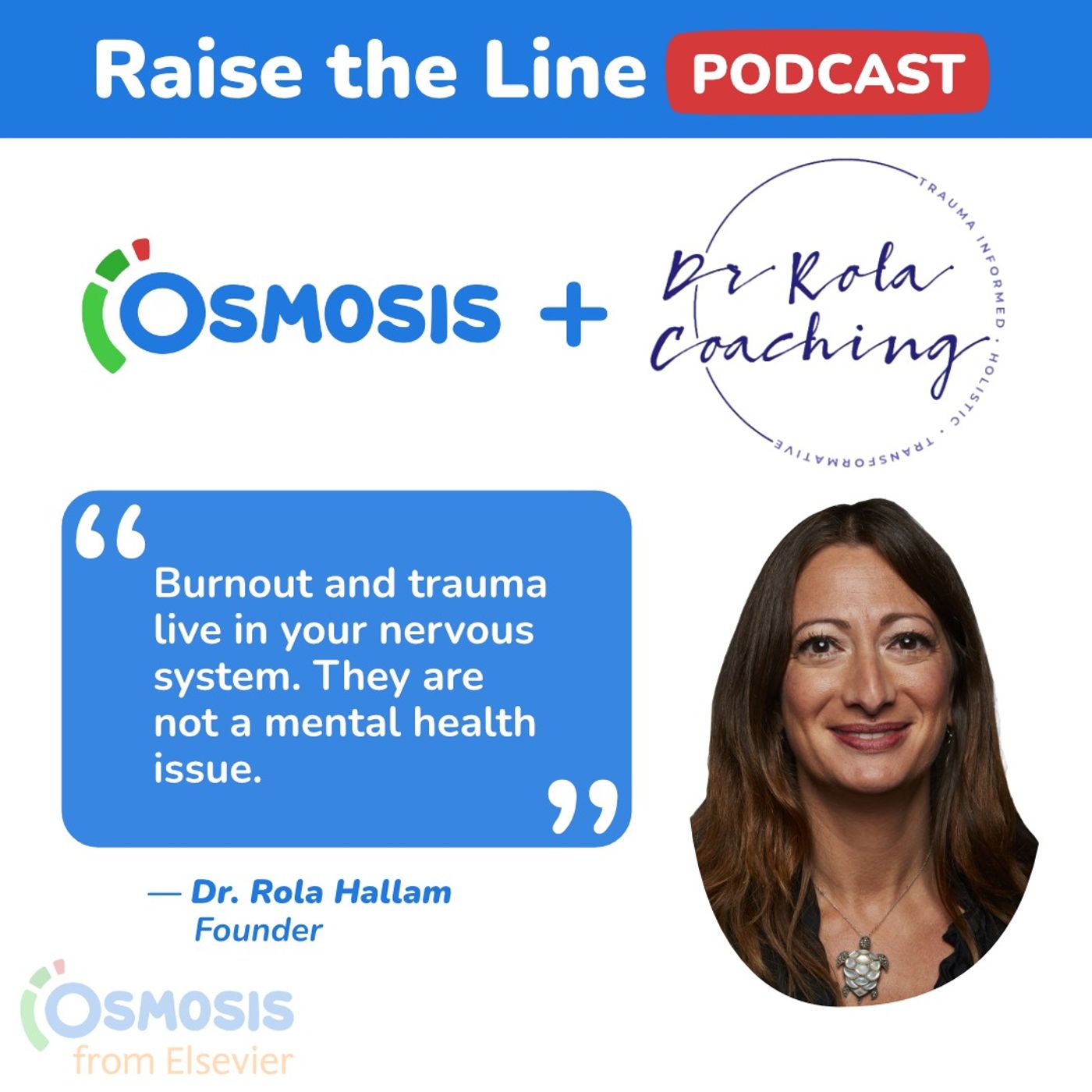
"Burnout and trauma are not mental illnesses. They live in your physiology. They live in your biology. They live very specifically in your nervous system,” Dr. Rola Hallam says with a conviction rooted in her own successful journey to overcome the effects of chronic stress she accumulated during many years on the frontlines of humanitarian crises in Syria and other conflict zones. Out of concern for the multitudes of health professionals who, like herself, spend years carrying the weight of their traumatic experiences without seeking help, or who pursue ineffective remedies for relieving it, Dr. Rola -- as she’s kn...
A Mother’s Legacy Inspires A Passion for Equity in Healthcare: Dr. Uche Blackstock, Founder and CEO of Advancing Health Equity
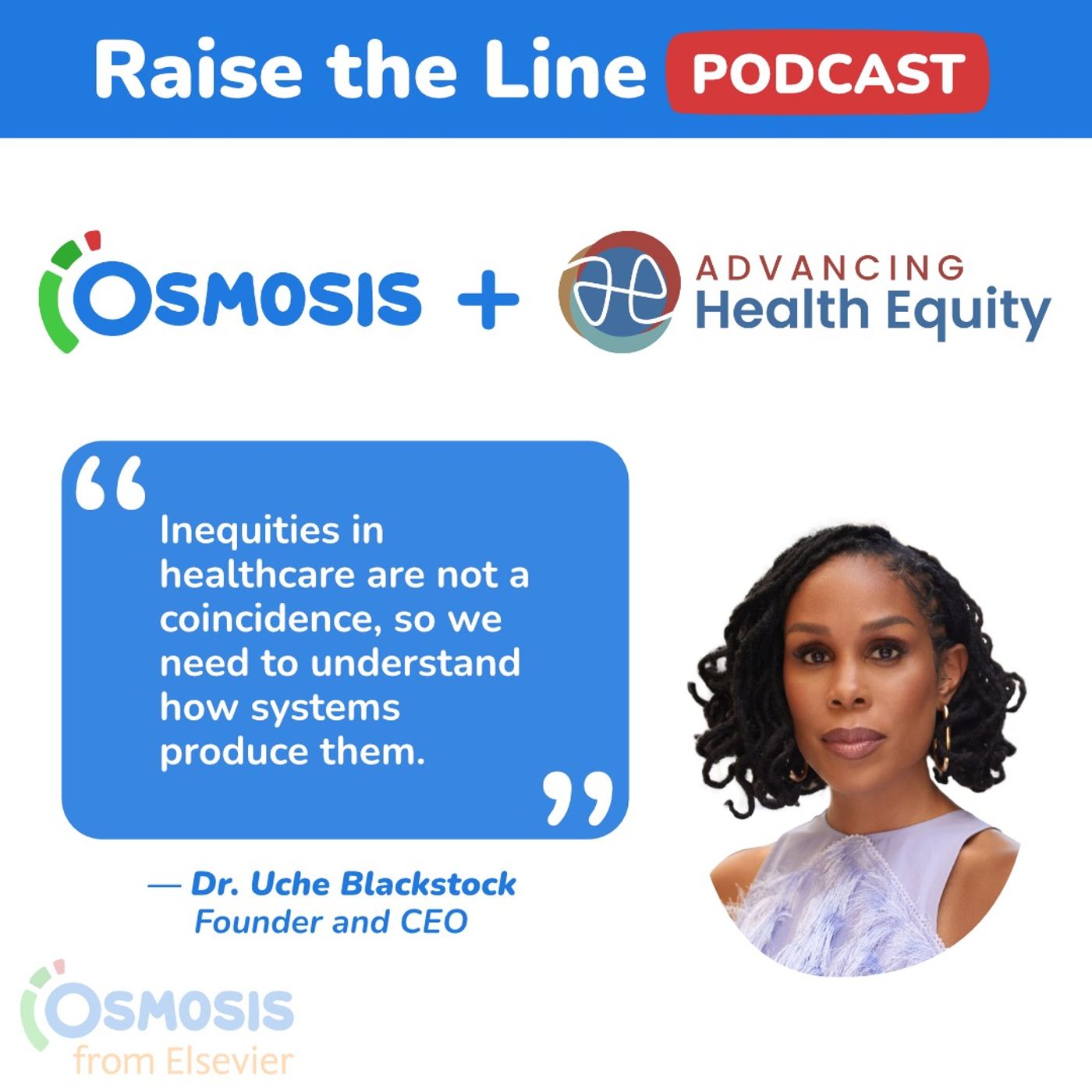
“Seeing that you can get through the most difficult times in life, succeed, and then also return to your community and work in service to your community was a lesson that has stuck with me,” says Dr. Uche Blackstock, the Founder and CEO of Advancing Health Equity and our guest on this inspiring episode of Raise the Line with Osmosis from Elsevier. It was a lesson the Harvard-trained physician learned from her own mother – also a Harvard trained physician – who overcame poverty, sexism and racial bias to forge an inspiring path. In her bestselling book, Legacy: A Black Physician Reckons w...
Lessons From the Frontlines of Humanitarian Crises: Dr. Joanne Liu, Former International President of Médecins Sans Frontières and Author of Ebola, Bombs and Migrants
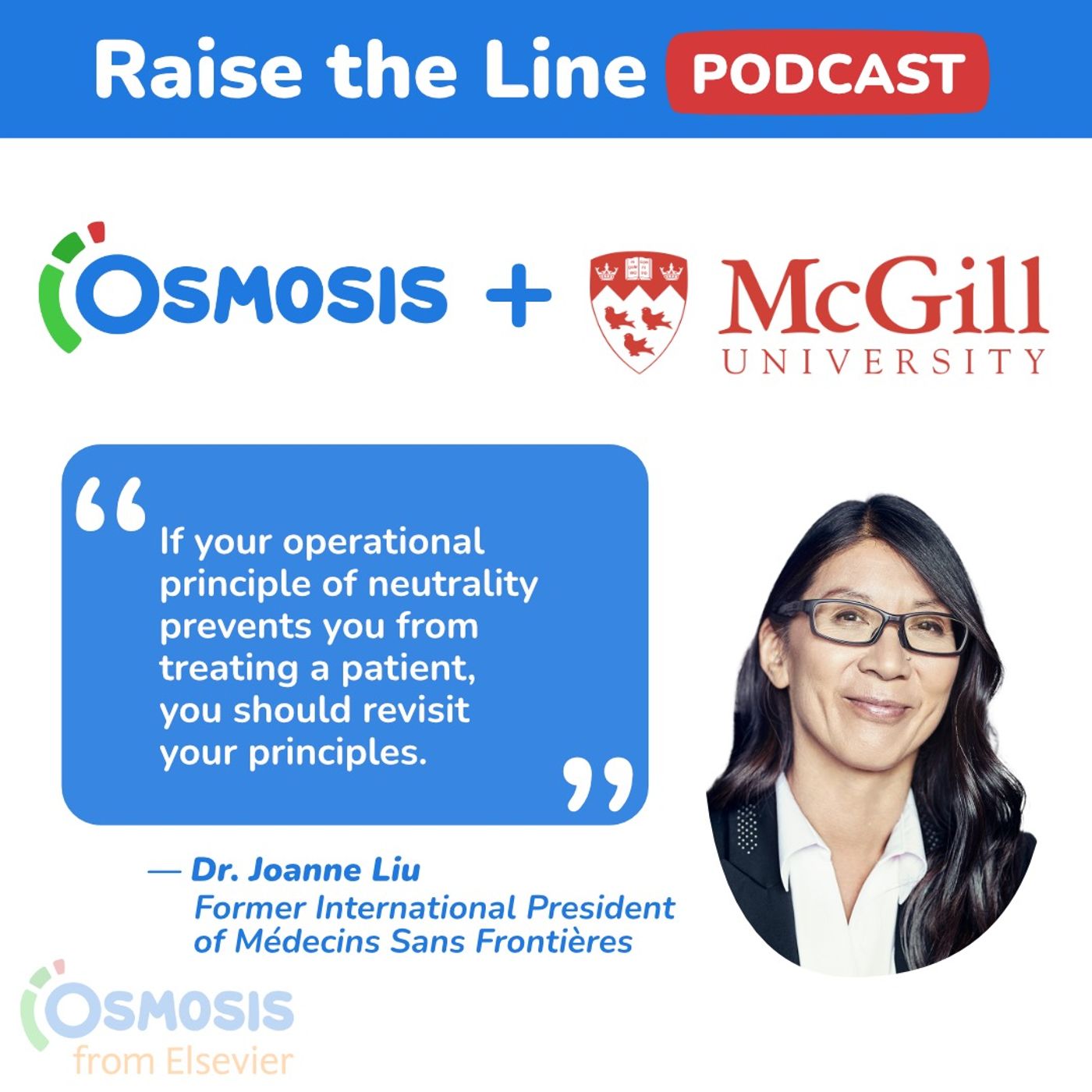
“Pandemics are a political choice. We will not be able to prevent every disease outbreak or epidemic but we can prevent an epidemic from becoming a pandemic,” says Dr. Joanne Liu, the former International President of Médecins Sans Frontières/Doctors Without Borders and a professor in the School of Population and Global Health at McGill University. You are in for a lot of that sort of frank and clear-eyed analysis in this episode of Raise the Line from Dr. Liu, whose perspective is rooted in decades of experience providing medical care on the frontlines of major humanitarian and he...
Rare Disease Parents Create a New Model for Drug Development: Nicole Johnson, Co-Founder and Executive Director of FOXG1 Research Foundation
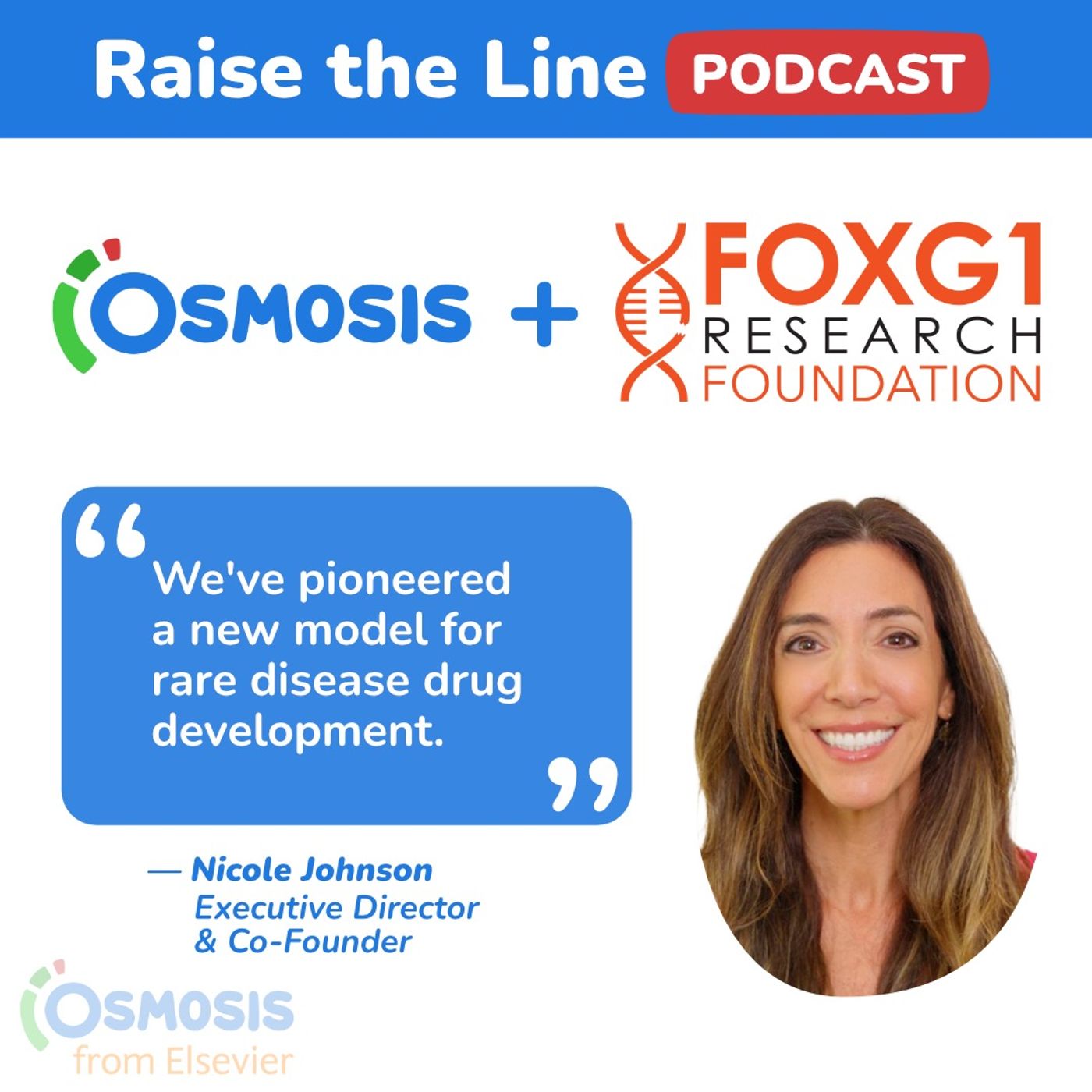
“As parents dedicated to getting a treatment for our children in their lifetimes, we have turned the rare disease drug development landscape upside down and created a new model,” says Nicole Johnson, co-founder and executive director of the FOXG1 Research Foundation. That’s not an exaggeration, as the foundation is on track to make history as it begins patient clinical trials on a gene replacement therapy next year. The former TV news producer and media executive unexpectedly entered the world of patient advocacy and drug research after her daughter, Josie, was born with FOXG1, a genetic disorder which causes severe...
A Colorful and Comprehensive Option for Visual Learners: Jennifer Zahourek, RN, Founder and CEO of RekMed
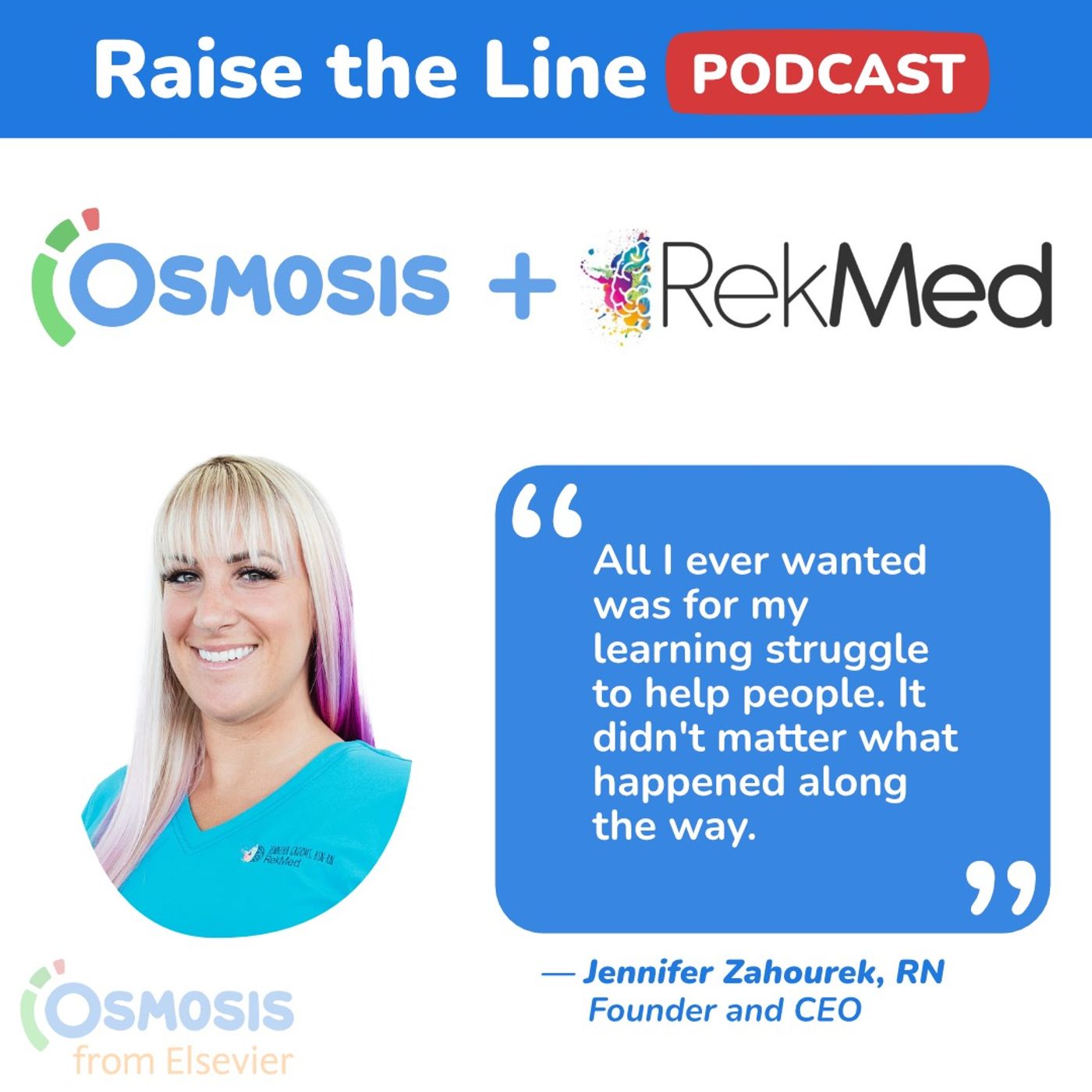
Today on Raise the Line, we bring you the unlikely and inspiring story of a woman who was afraid of blood as a child but became an accomplished nurse; who struggled with learning disabilities but became an effective educator; and who, despite lacking business experience or knowledge of graphics, built a successful company that produces visually rich educational materials for nurses and other providers. “I think the theme of my life has been I have struggled with learning, and I didn't want other people to struggle,” says Jennifer Zahourek, RN, the founder and CEO of RekMed which has developed a se...
How Emotional Skills Can Elevate Medical Practice and Patient Care: Professor Alicja Galazka, University of Silesia
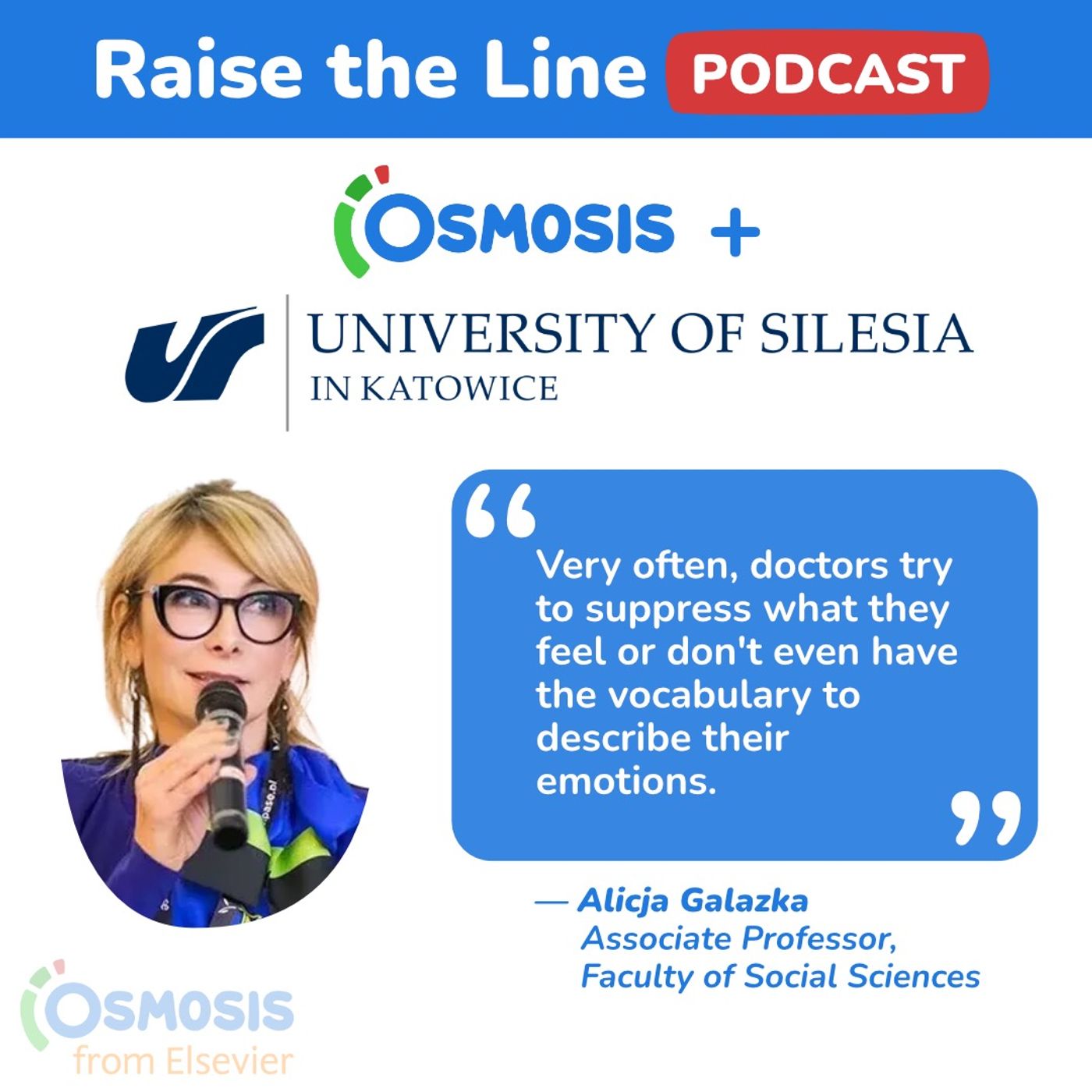
“Very often, doctors try to suppress what they feel or don't even have the vocabulary to describe their emotions,” says Professor Alicja Galazka of the University of Silesia, an observation based on decades of work with physicians to enhance their emotional intelligence and resilience. Galazka, a psychotherapist, psychologist, lecturer and coach, believes this deficit is rooted in part in a lack of instruction in the internal and external psychological dimensions of being a medical provider. “There is not enough space created in medical school for teaching and training students about how to deal with their own stress and all of the...
Overcoming Misconceptions About Geriatrics: Dr. Julia Hiner, Geriatric Medicine Fellowship Program Director at McGovern Medical School

"Older adults have this special clarity about who they are and what they want, which is incredibly inspiring," says Dr. Julia Hiner, explaining, in part, why she loves her work as a geriatrician in Houston, Texas. She also enjoys the challenge of the medical complexity these patients present and the opportunity it creates to see the patient as a whole person. In fact, as you’ll hear in this upbeat conversation with Raise the Line host Lindsey Smith, there’s almost nothing about geriatrics that Dr. Hiner does not enjoy, which explains her passion for teaching the subject at McGo...
The Importance of Seeing Rare Disease Patients Holistically: Eric & Kristi Levine, Parents of a Child with CACNA1A

"It was pretty apparent to me that something was going on with him," says Kristi Levine, describing the realization that, based on her experience as a Montessori teacher, her infant son, Trey, was missing developmental milestones. Unfortunately, Kristi’s hunch turned out to be correct and Trey was later diagnosed with a rare genetic mutation called CACNA1A which is impacting his motor skills, balance, coordination and speech. Kristi and her husband, Eric, join host Michael Carrese on this installment in our Year of the Zebraseries to help us understand the disorder and its implications for Trey and their fa...
How Providers Can Join the Battle Against Misinformation: Dr. Raven Baxter, Director of Science Communication at the Cohen Center for Recovery from Complex Chronic Illness

We have a special guest on today's episode whose voice will be familiar to regular listeners. Last year at this time, Dr. Raven Baxter occupied the Raise the Line host chair for a special ten-part series we produced in collaboration with the Cohen Center for Recovery from Complex Chronic Illness (CoRe) at Mount Sinai in New York City, where she serves as the Director of Science Communication. The series explored the latest understandings of post-acute infection syndromes -- such as Chronic Lyme and Long COVID -- with an array of experts from the Center and other researchers and providers. I...
